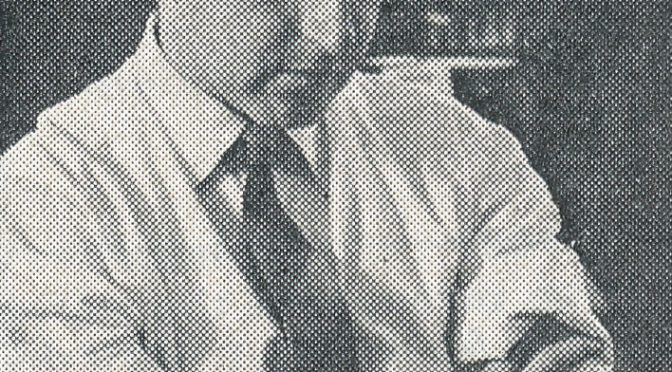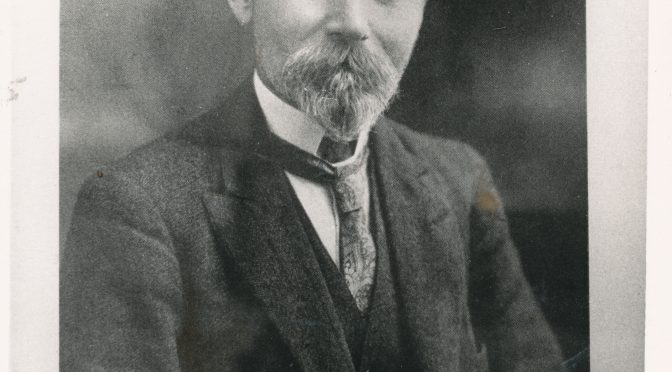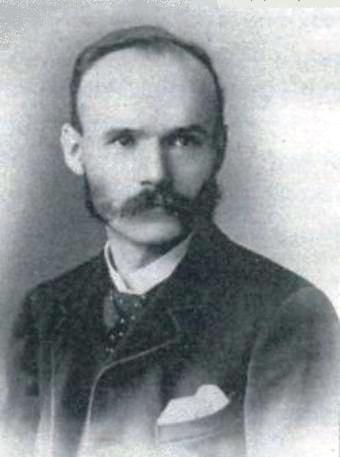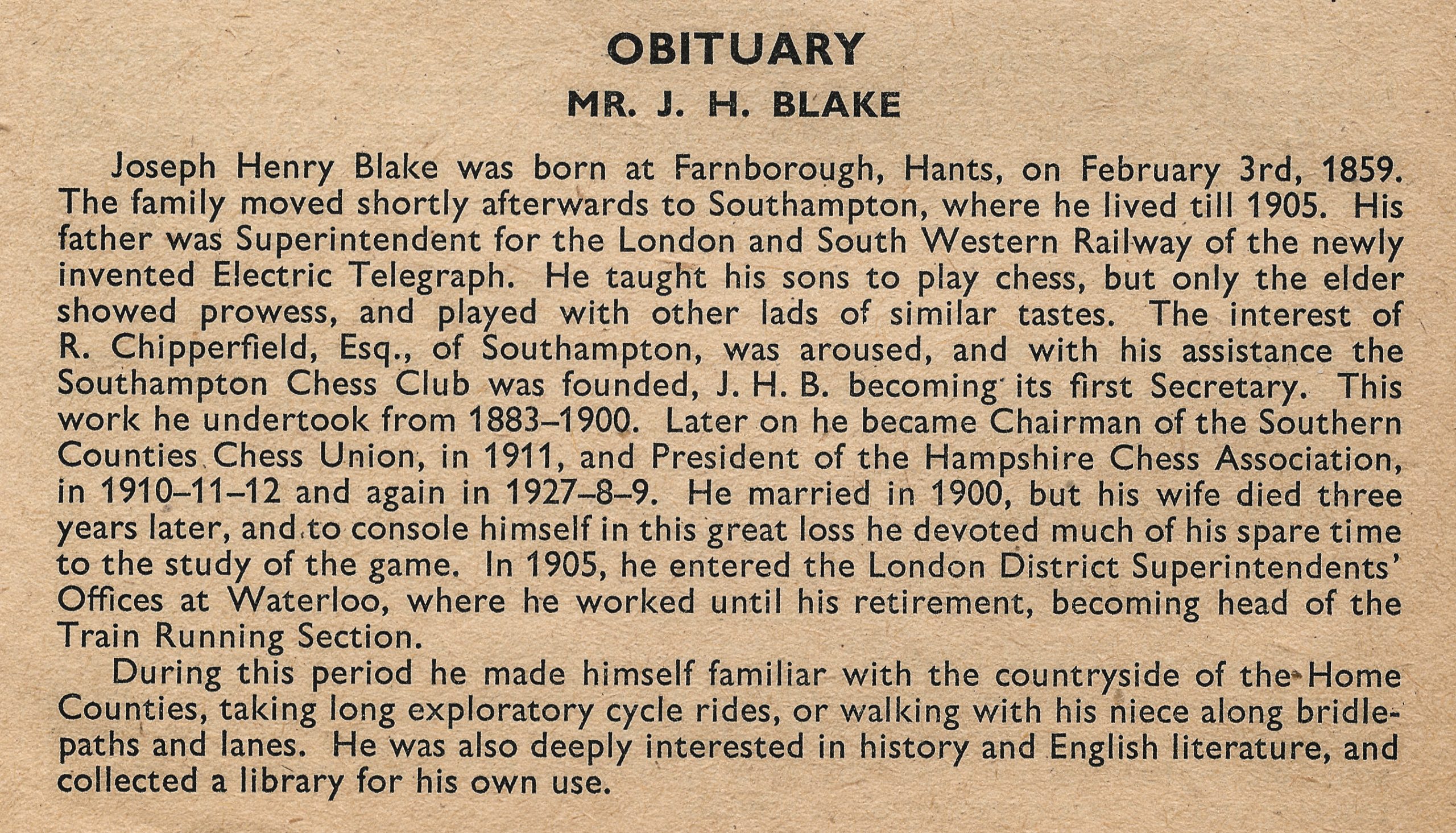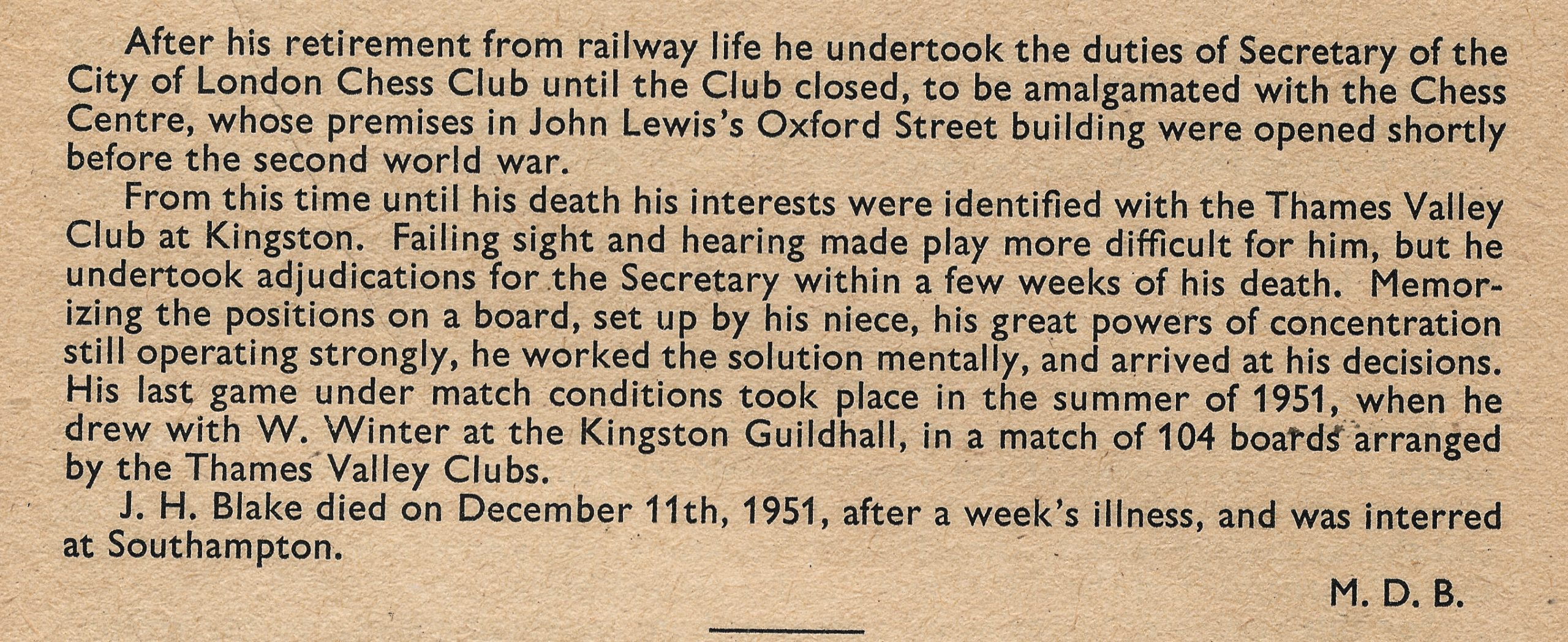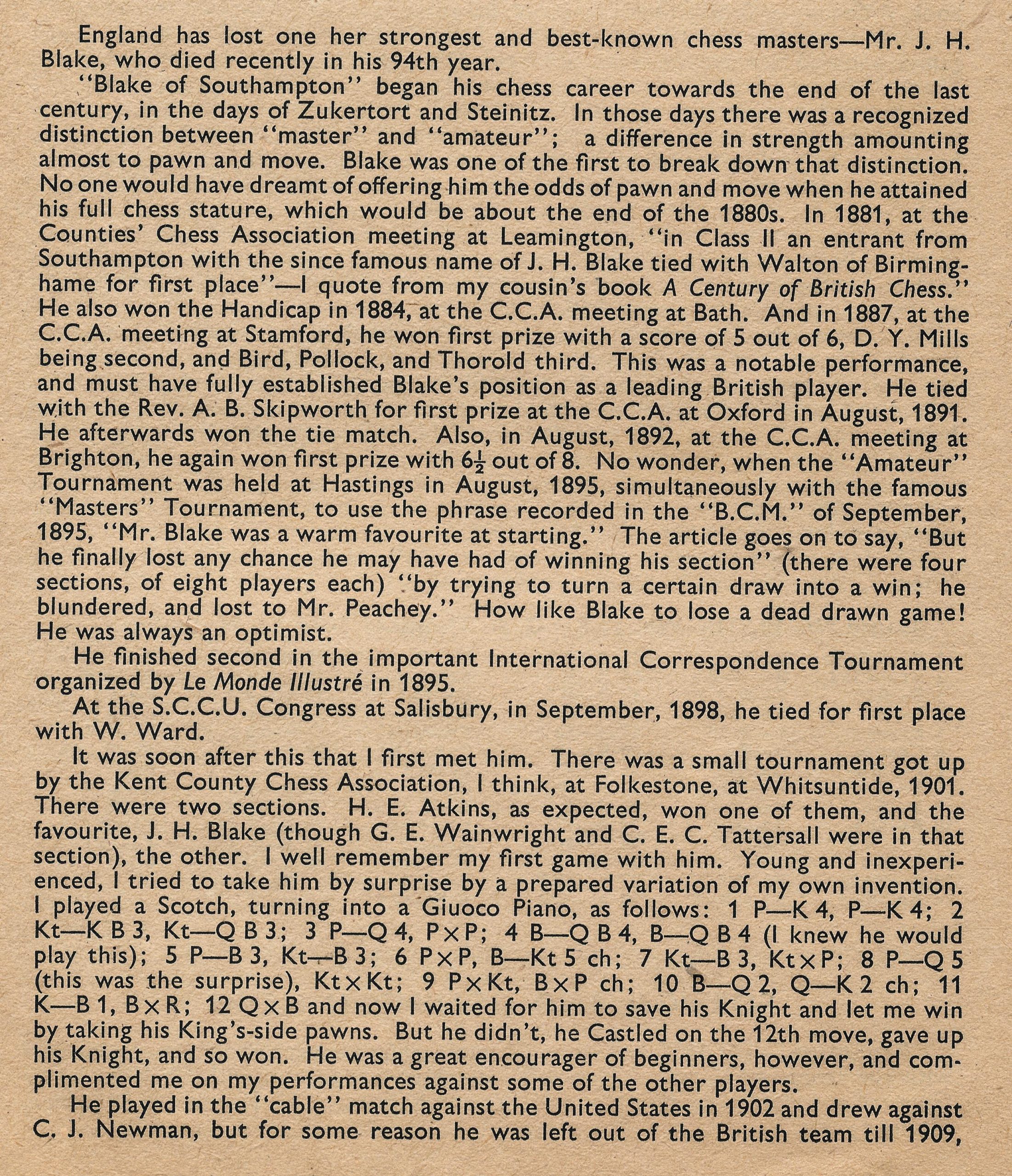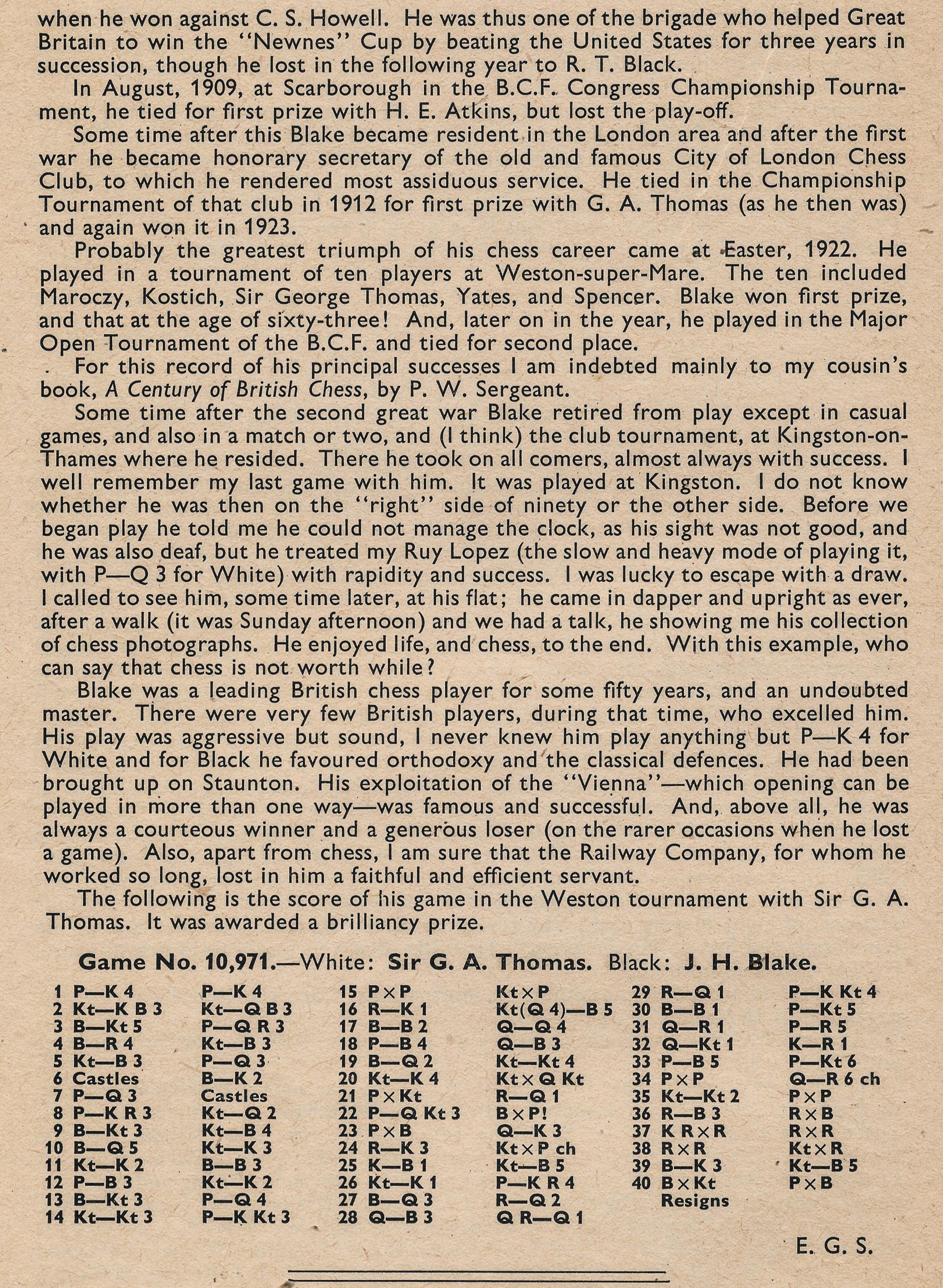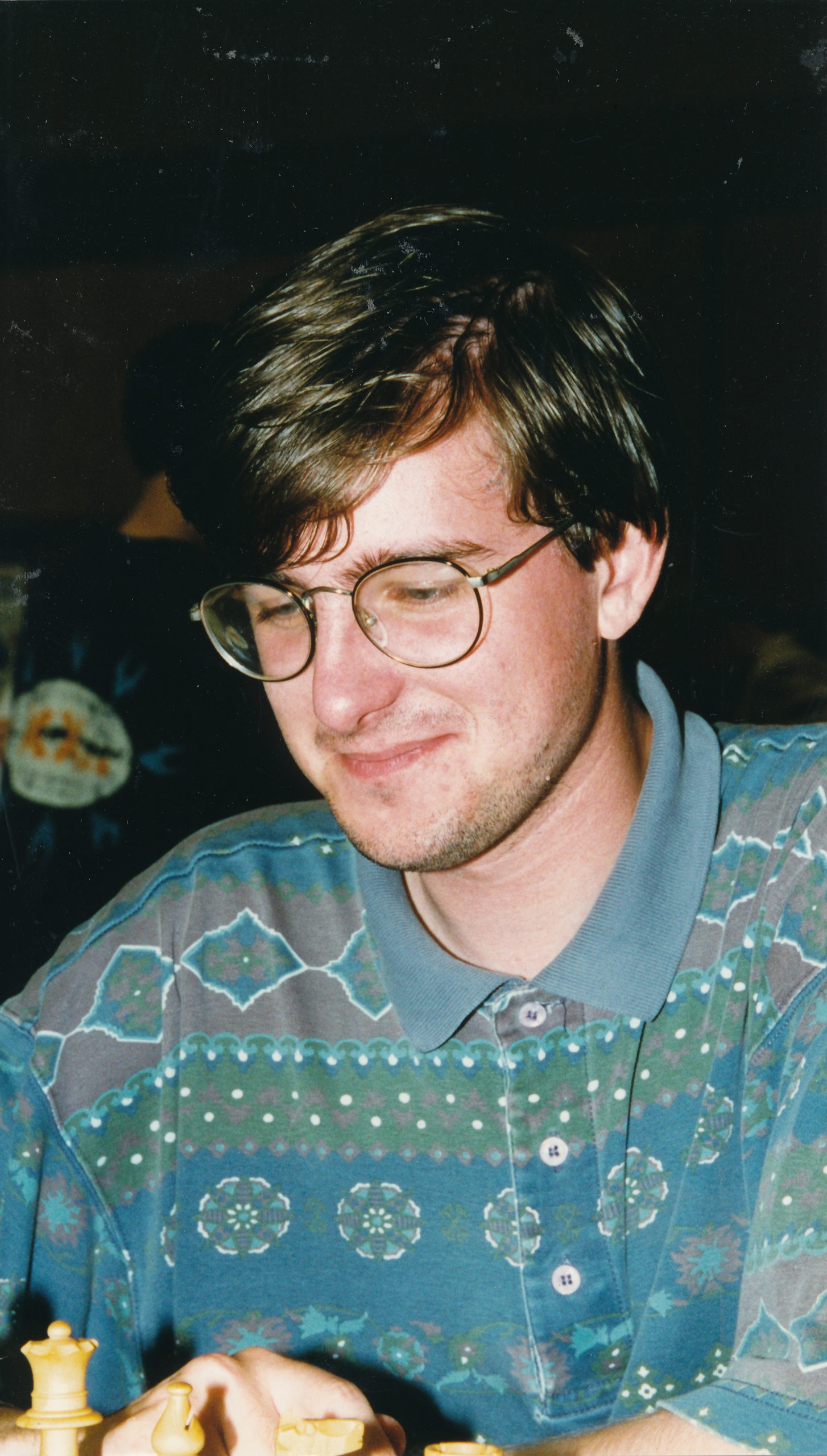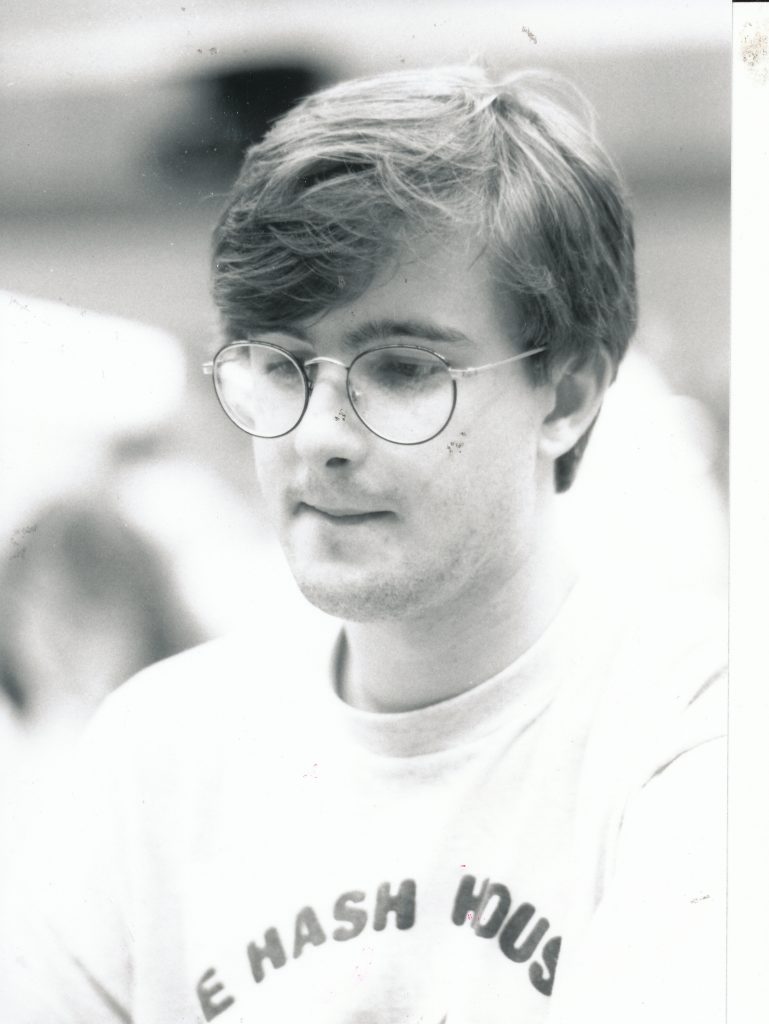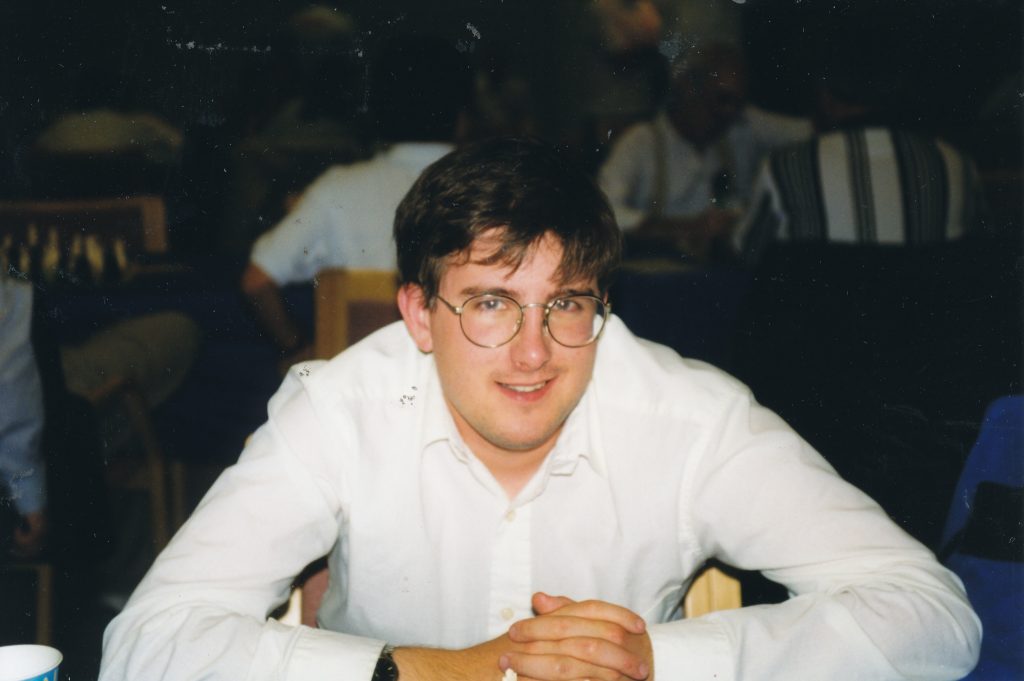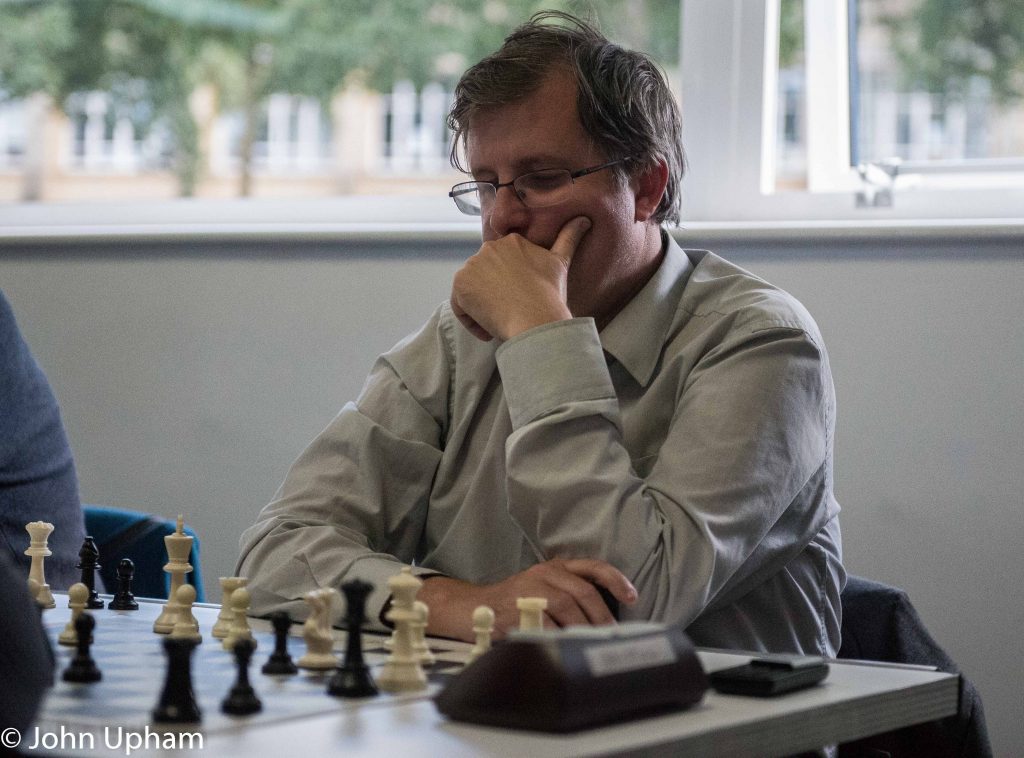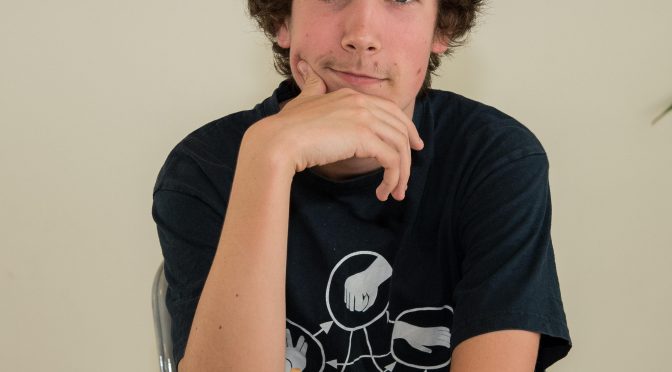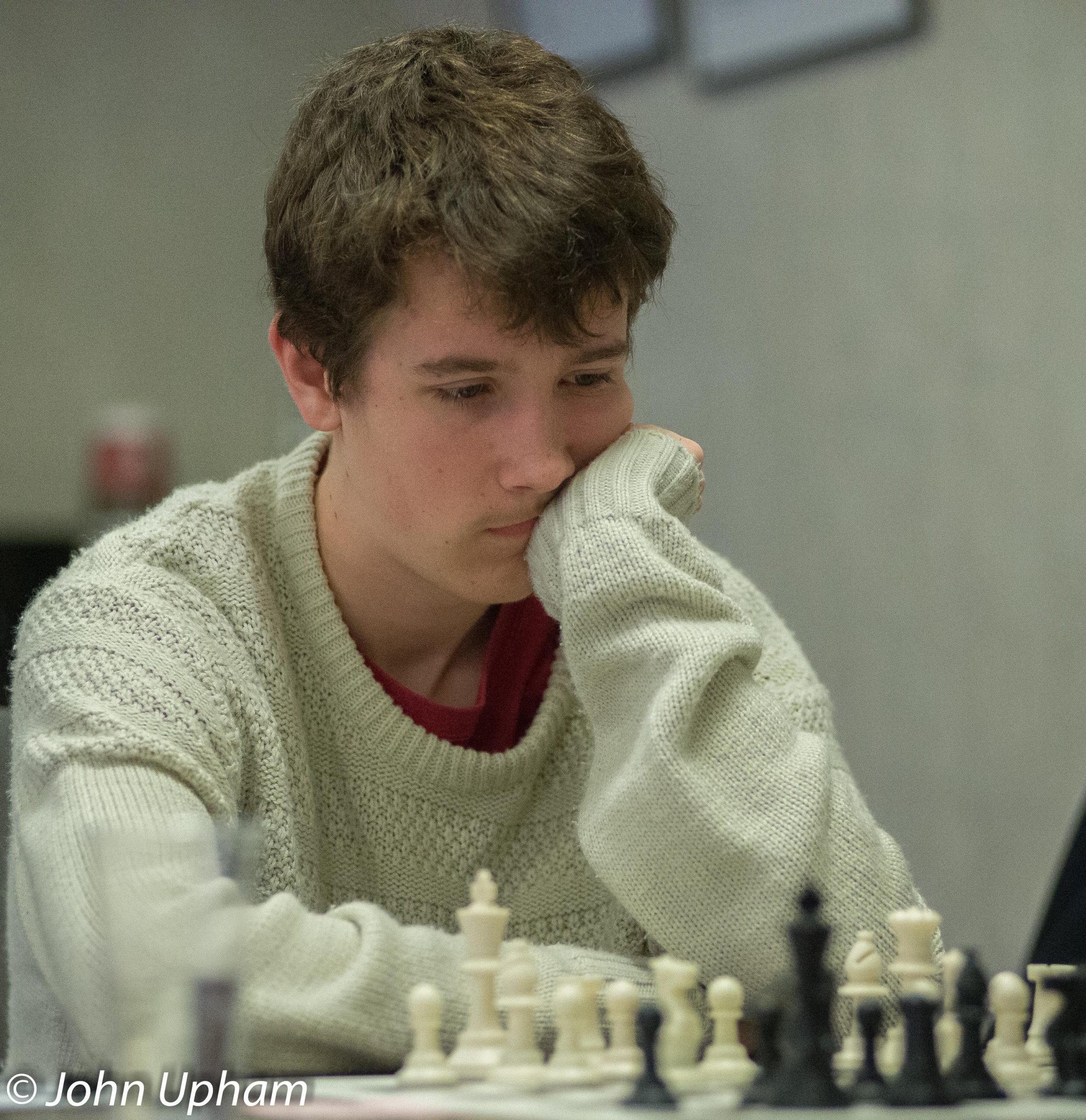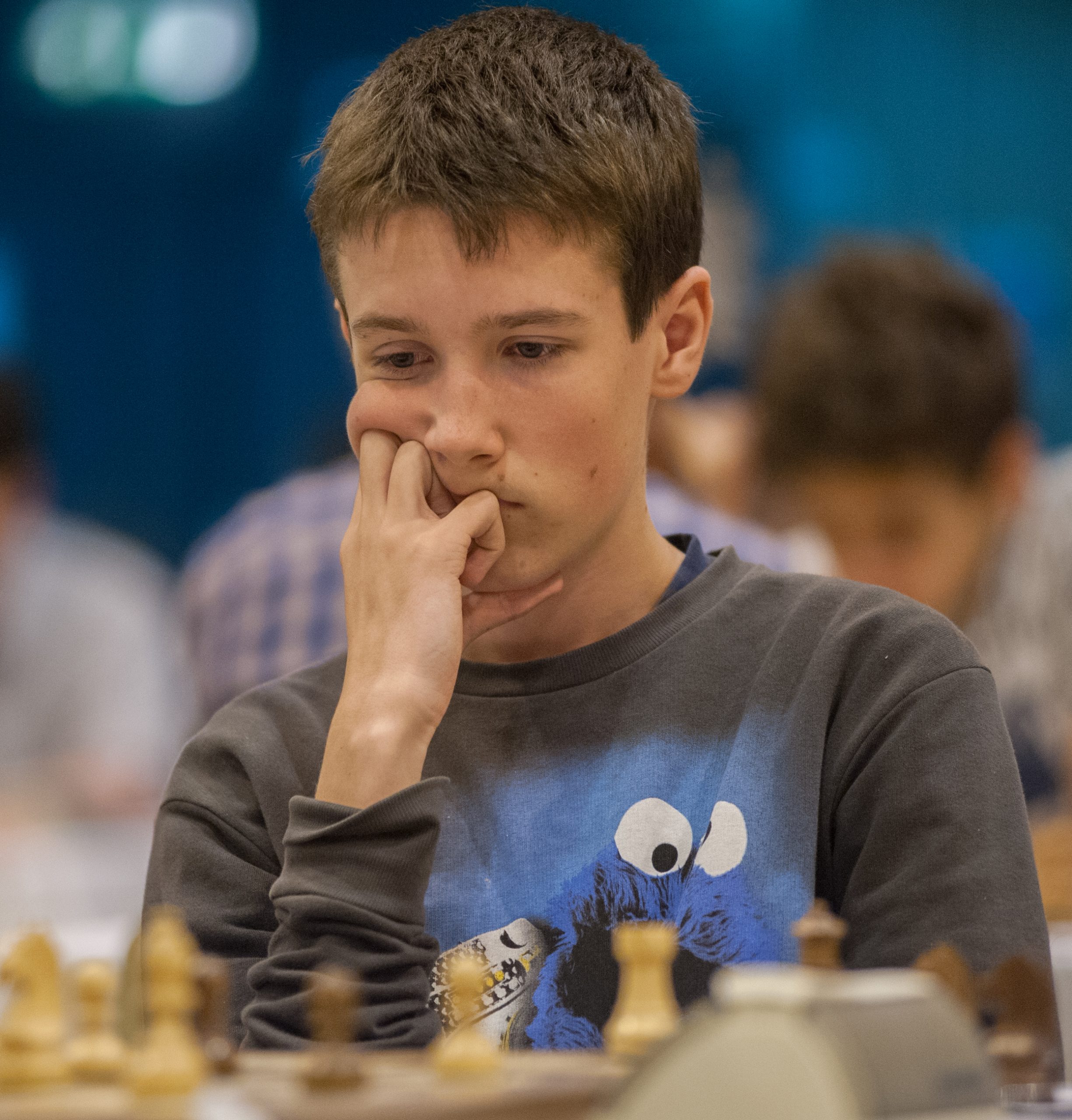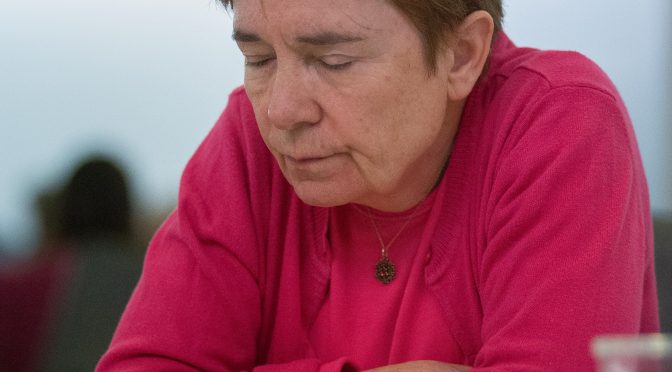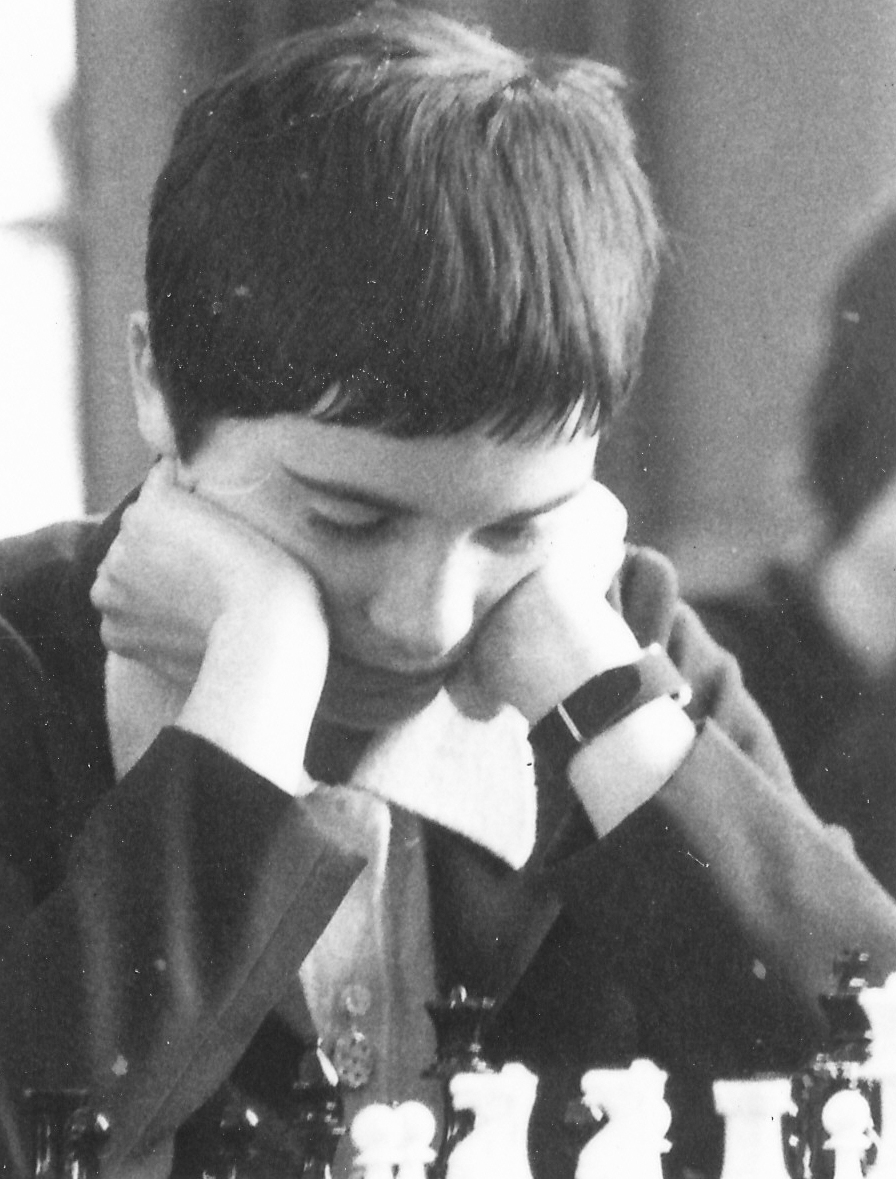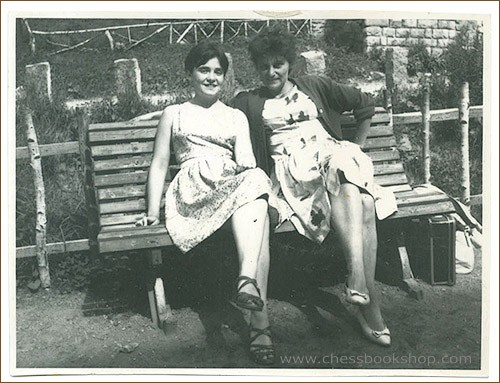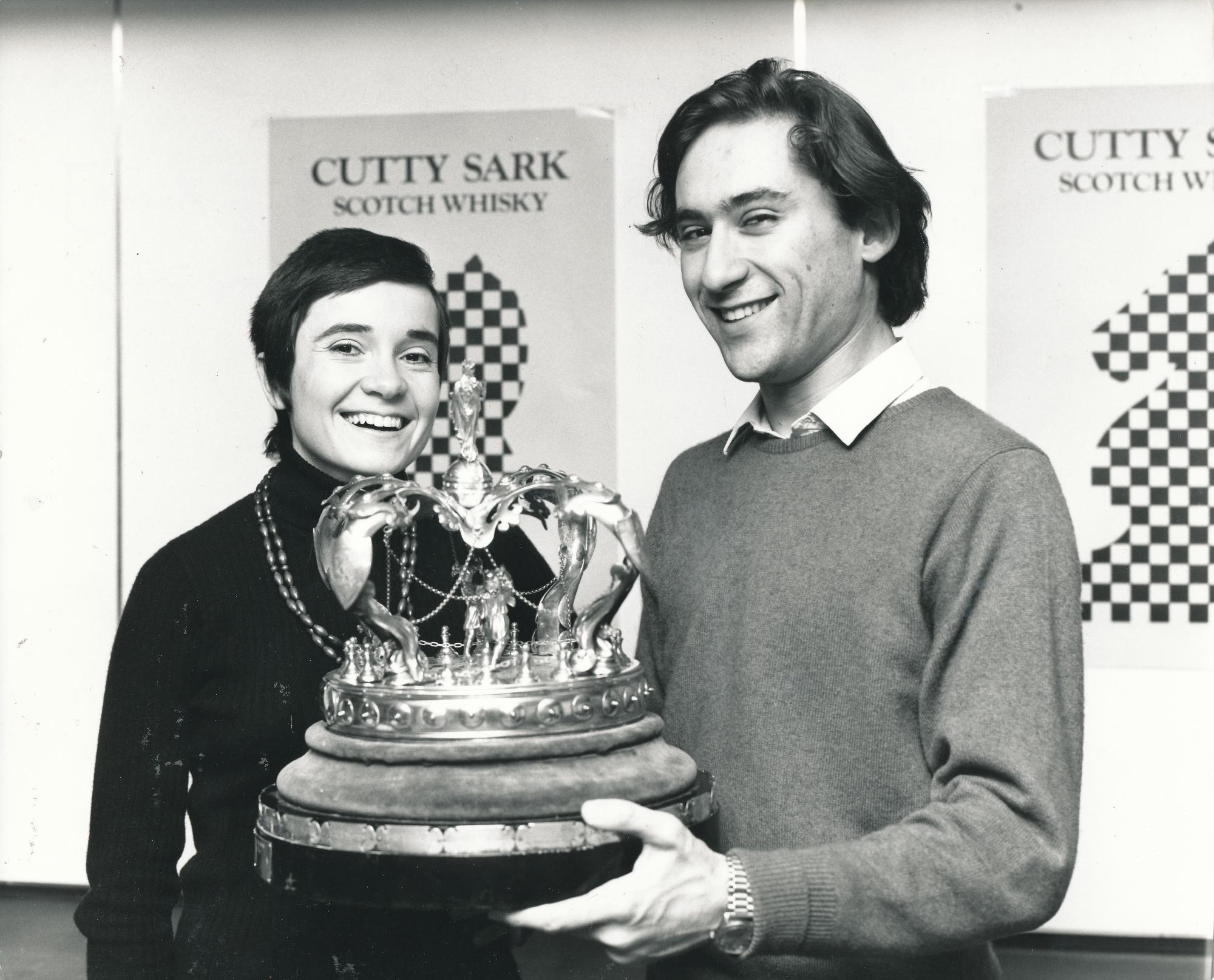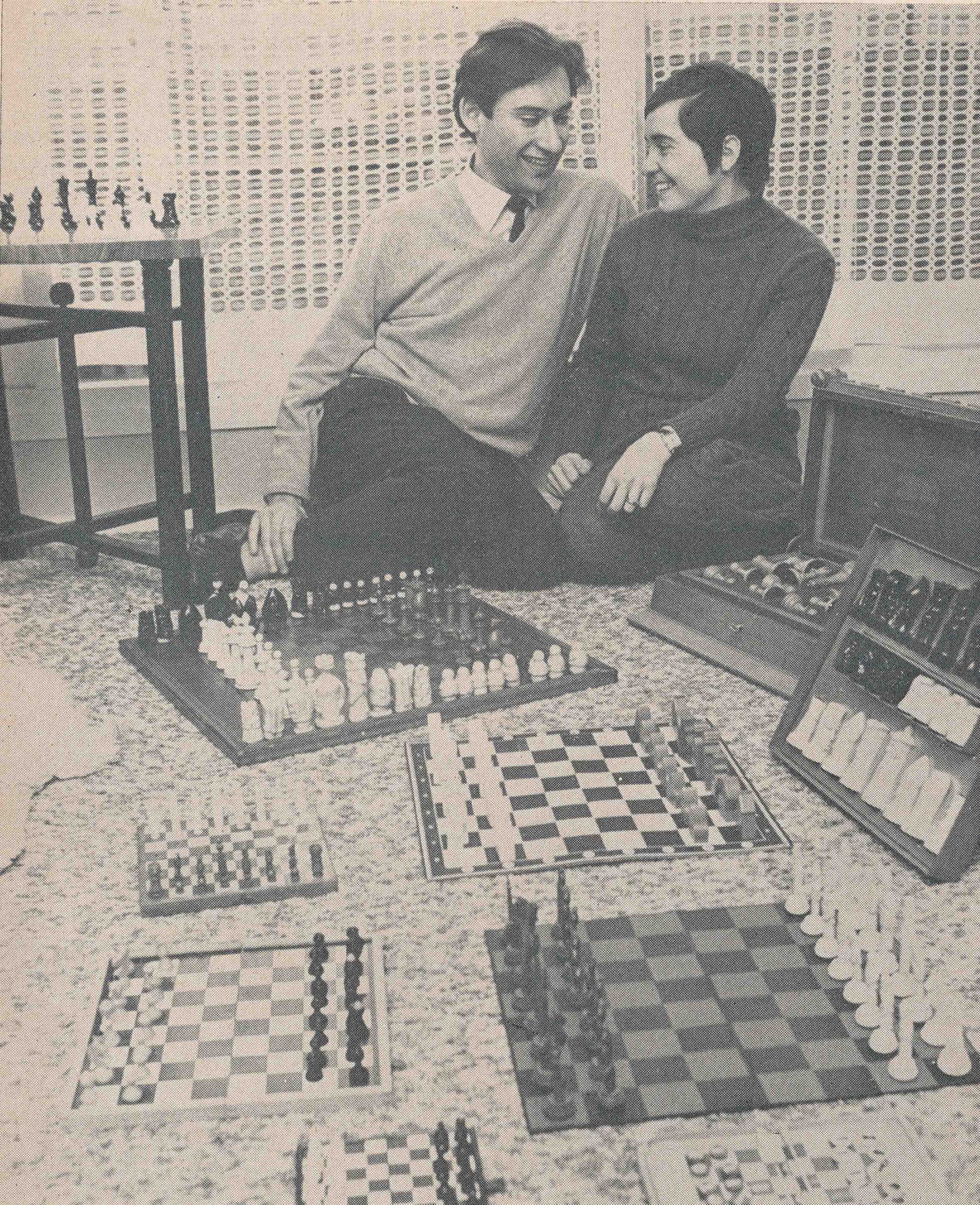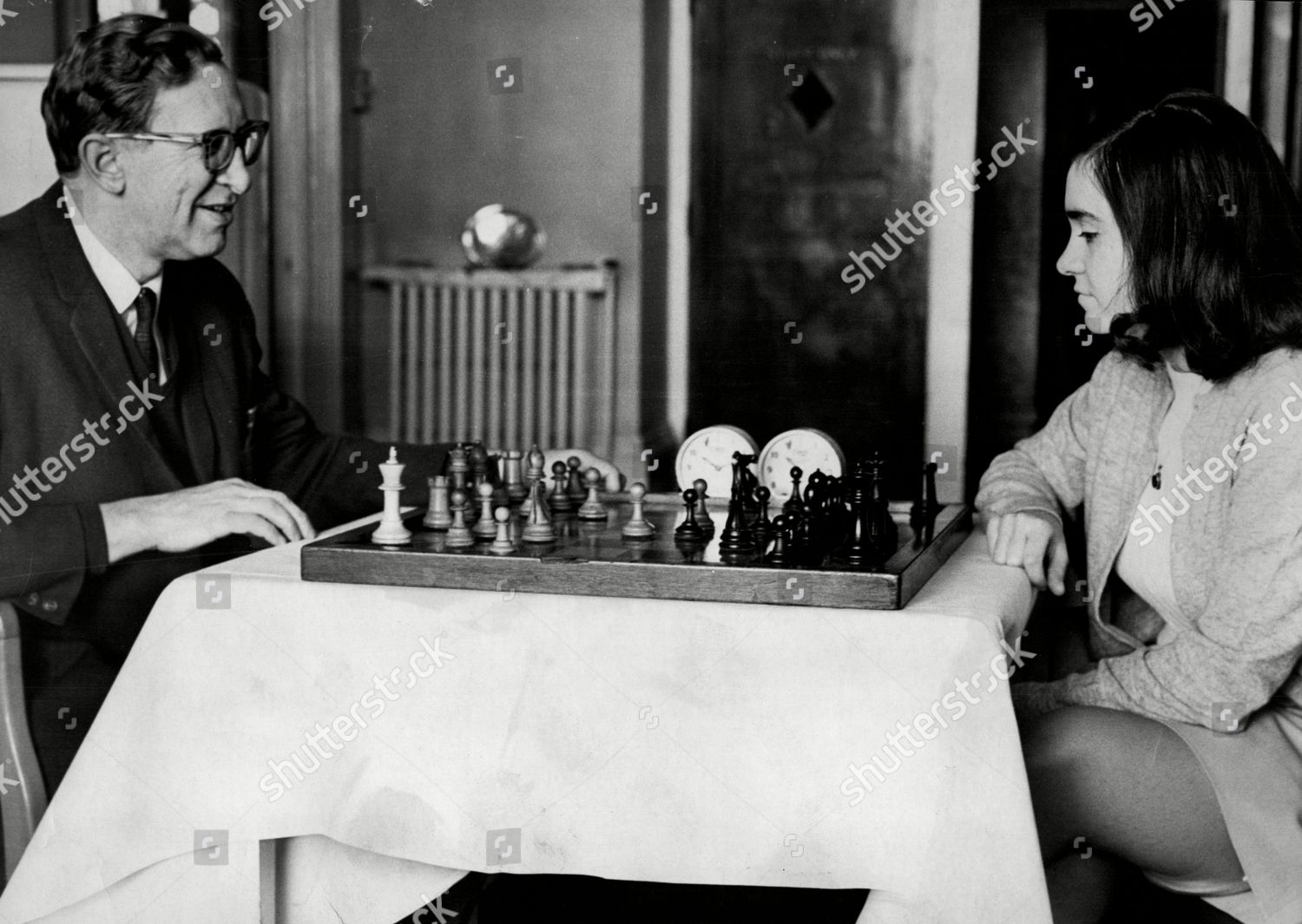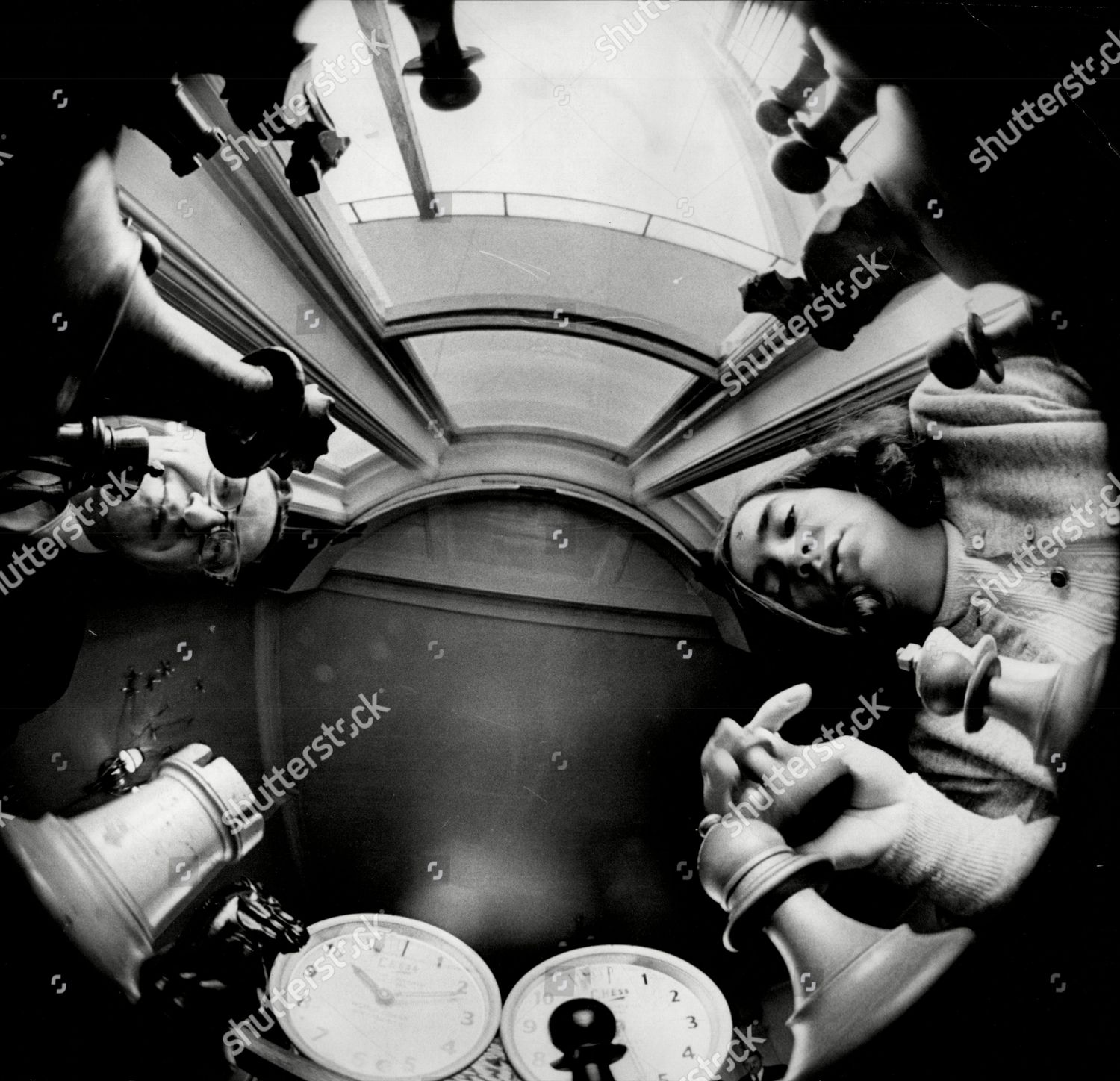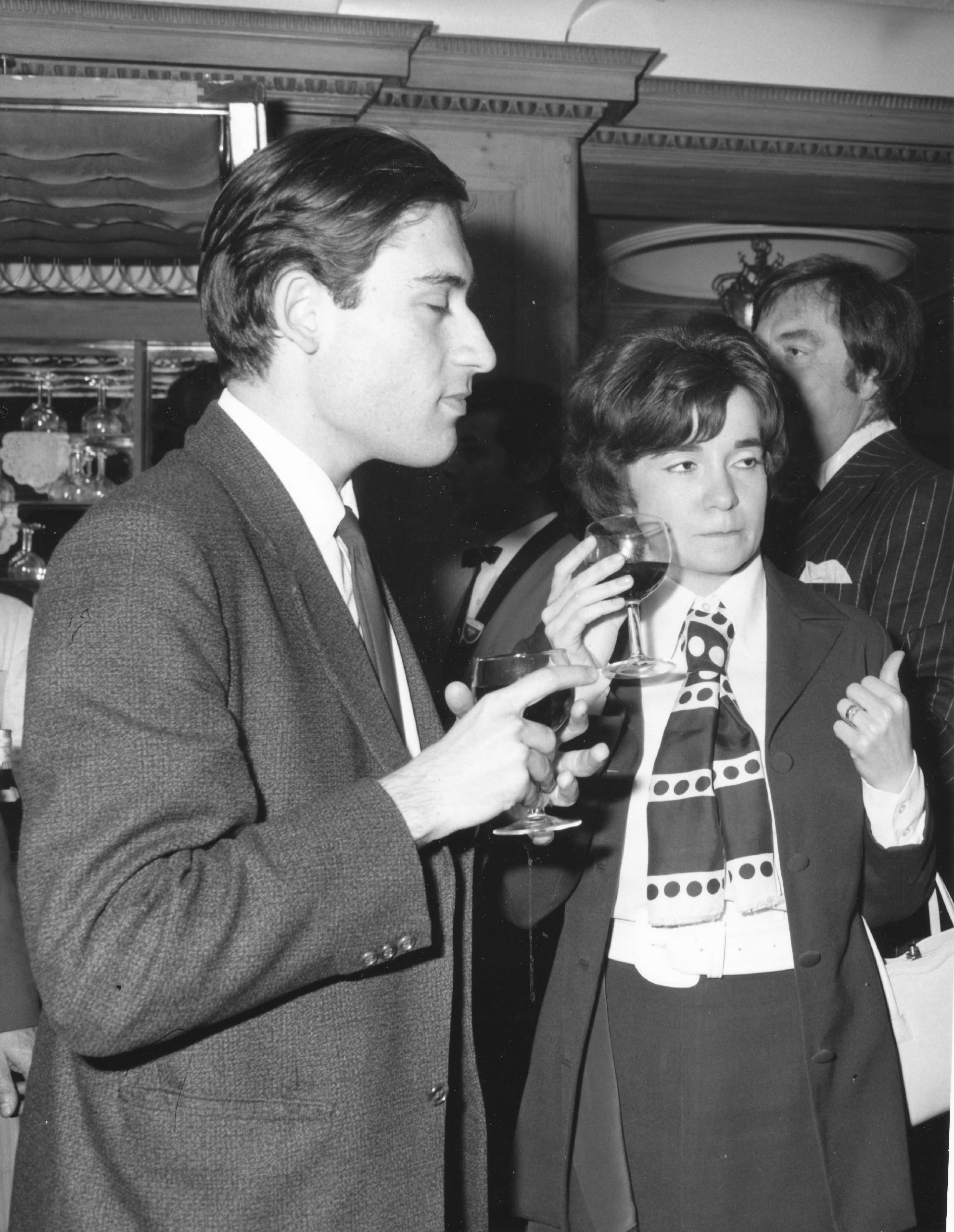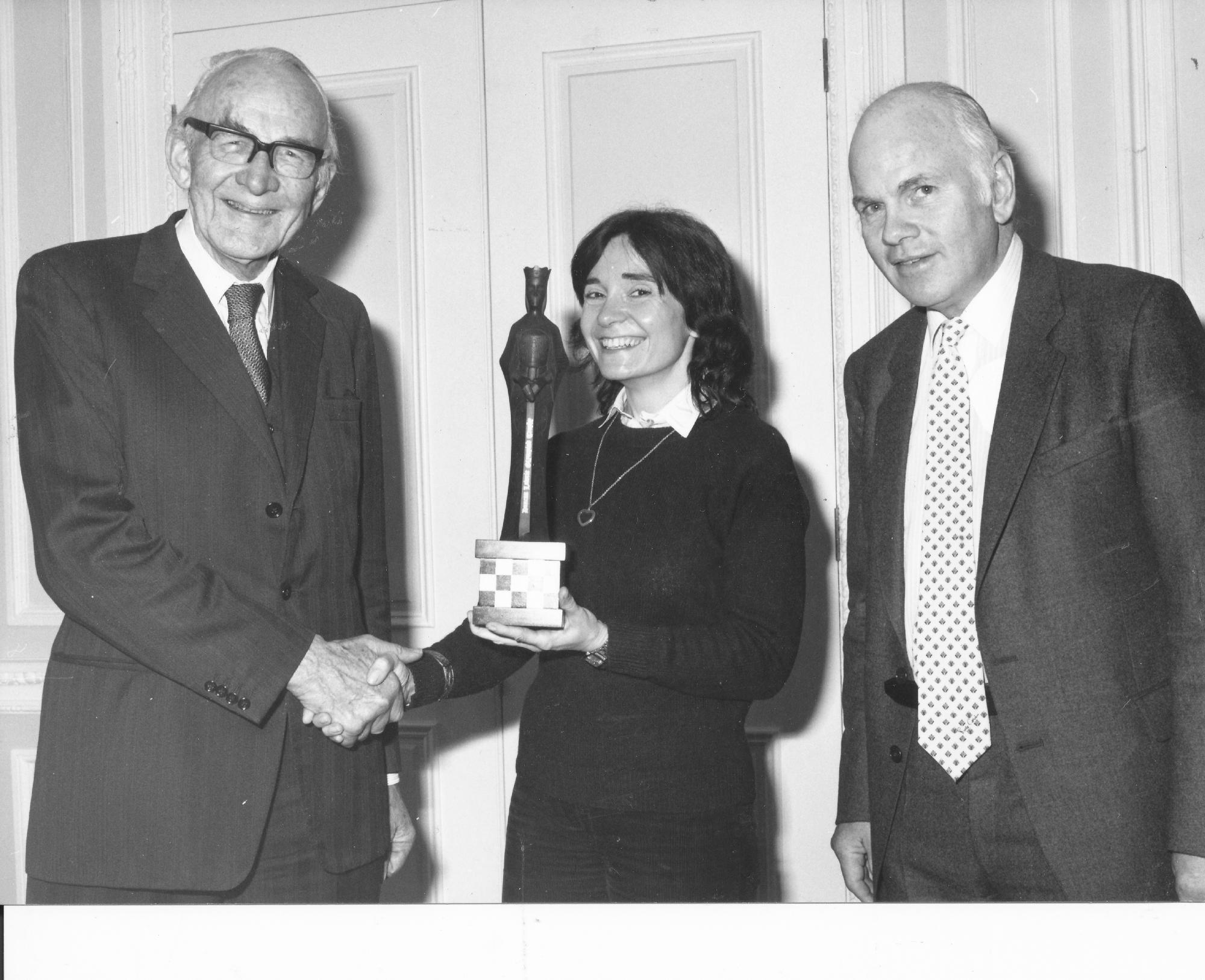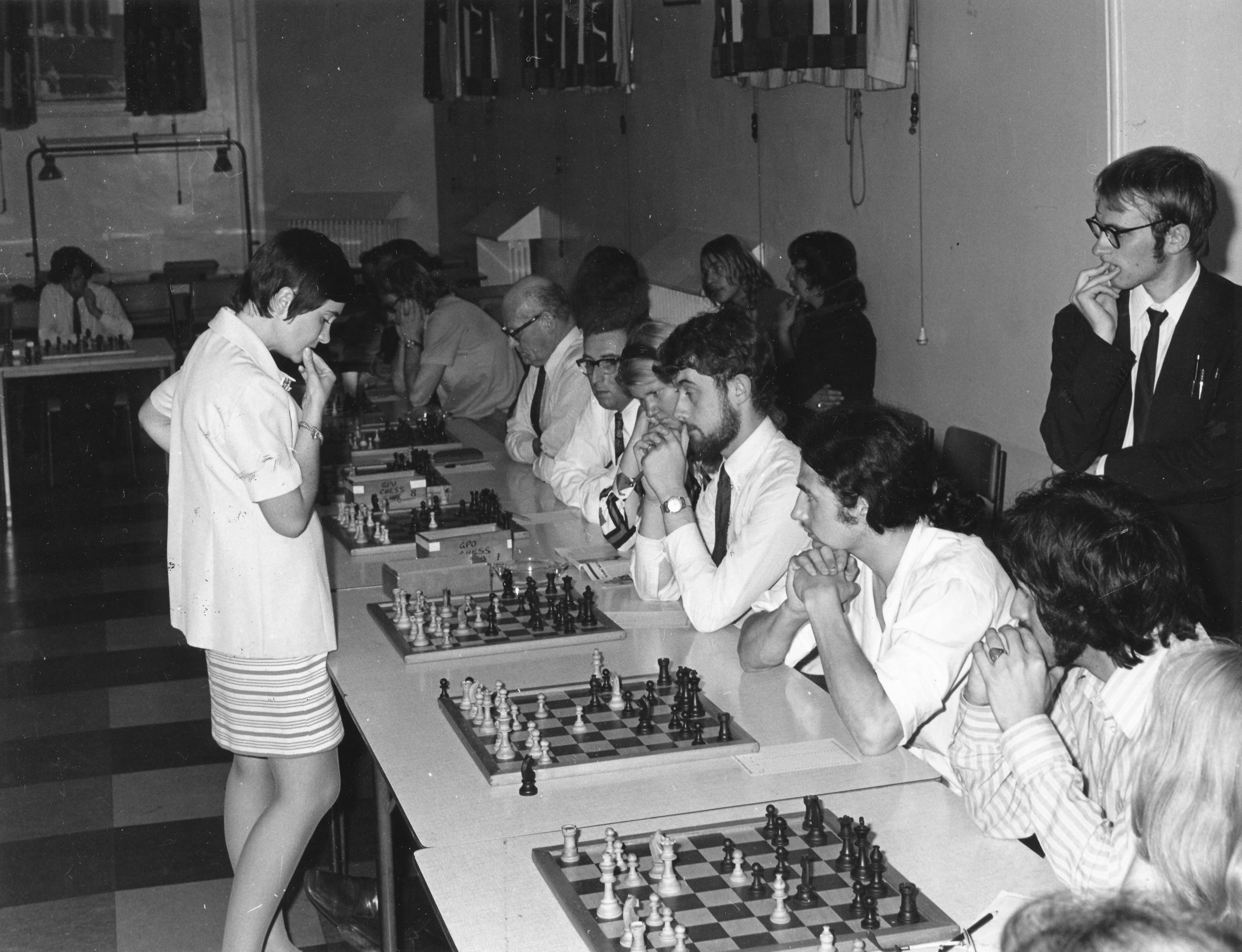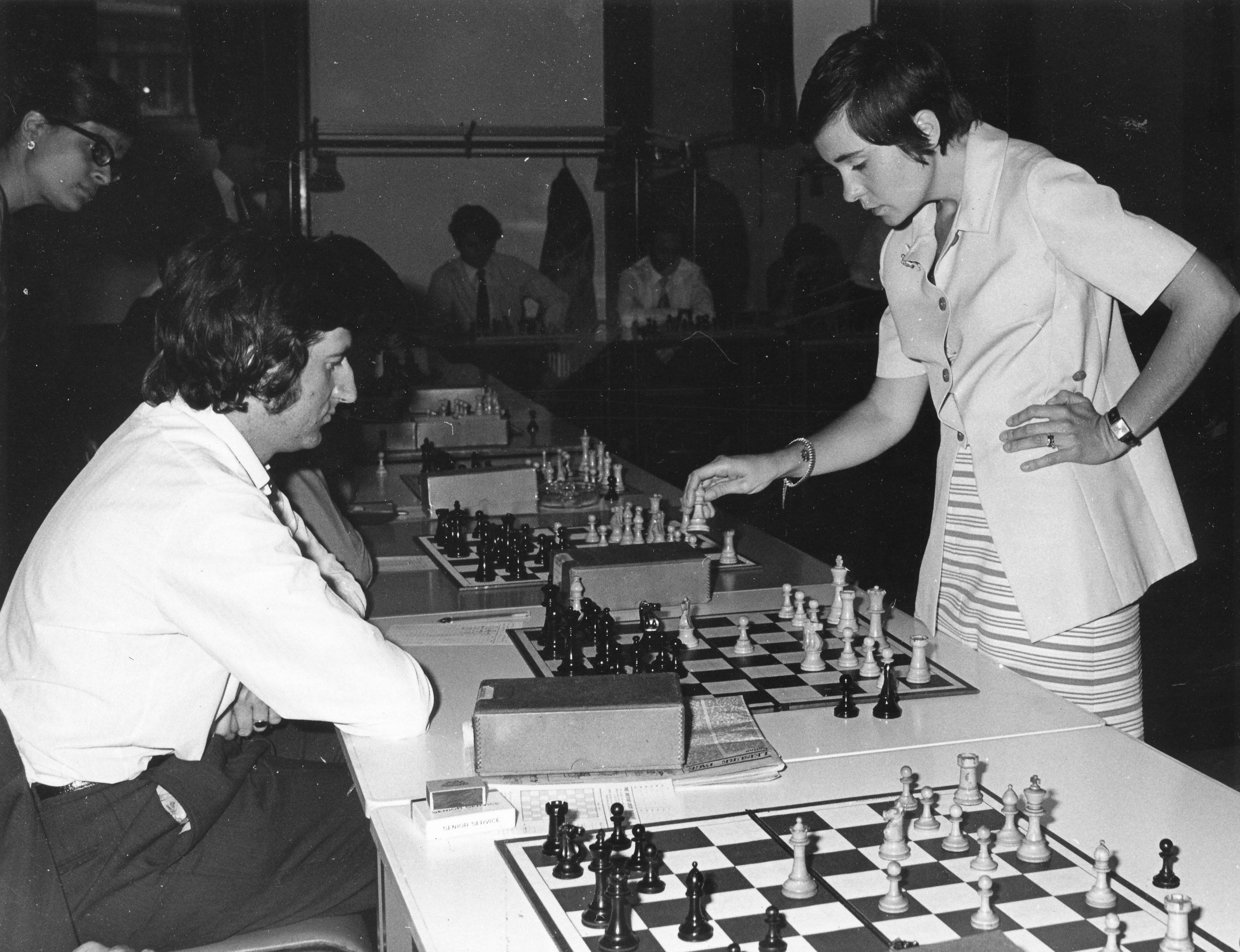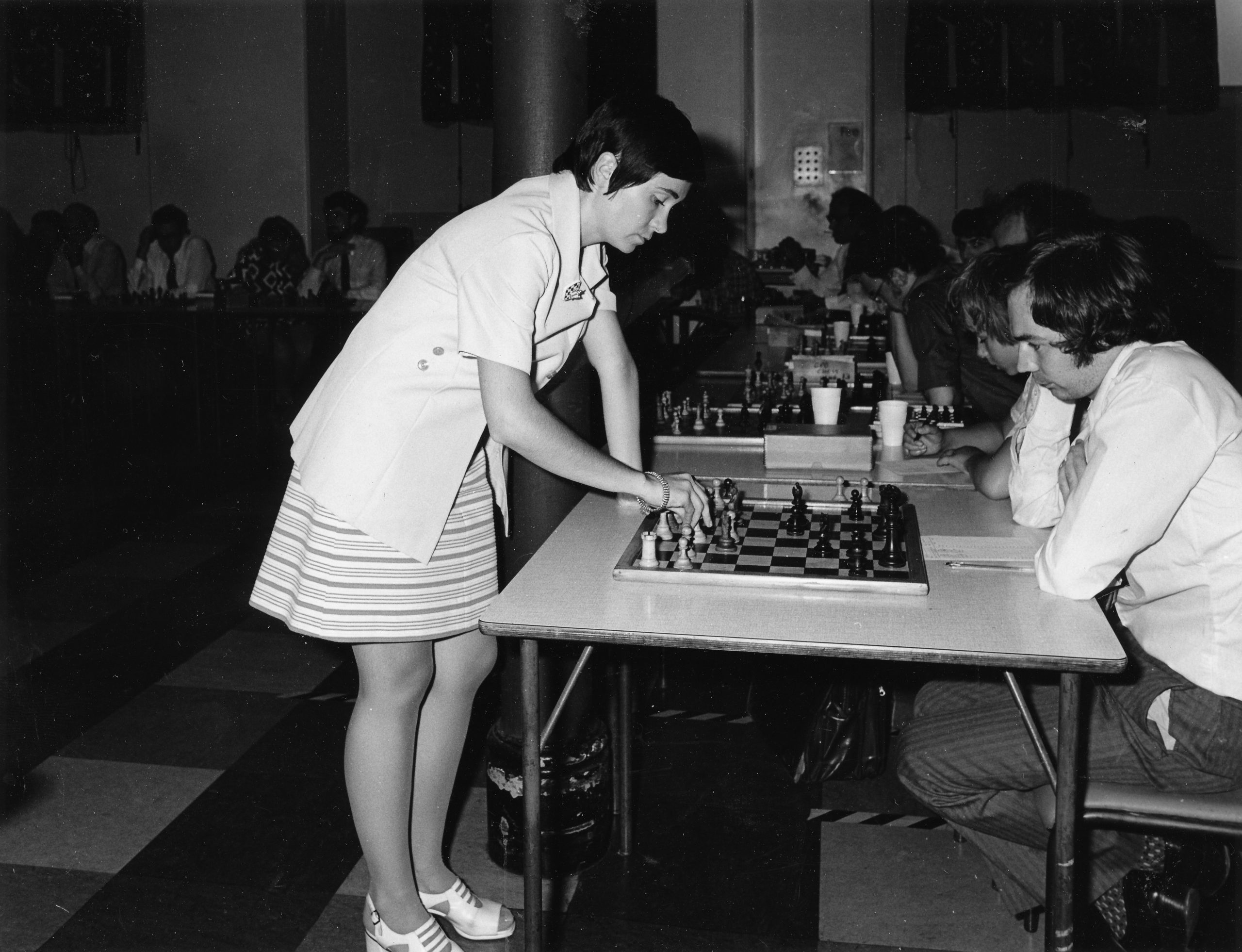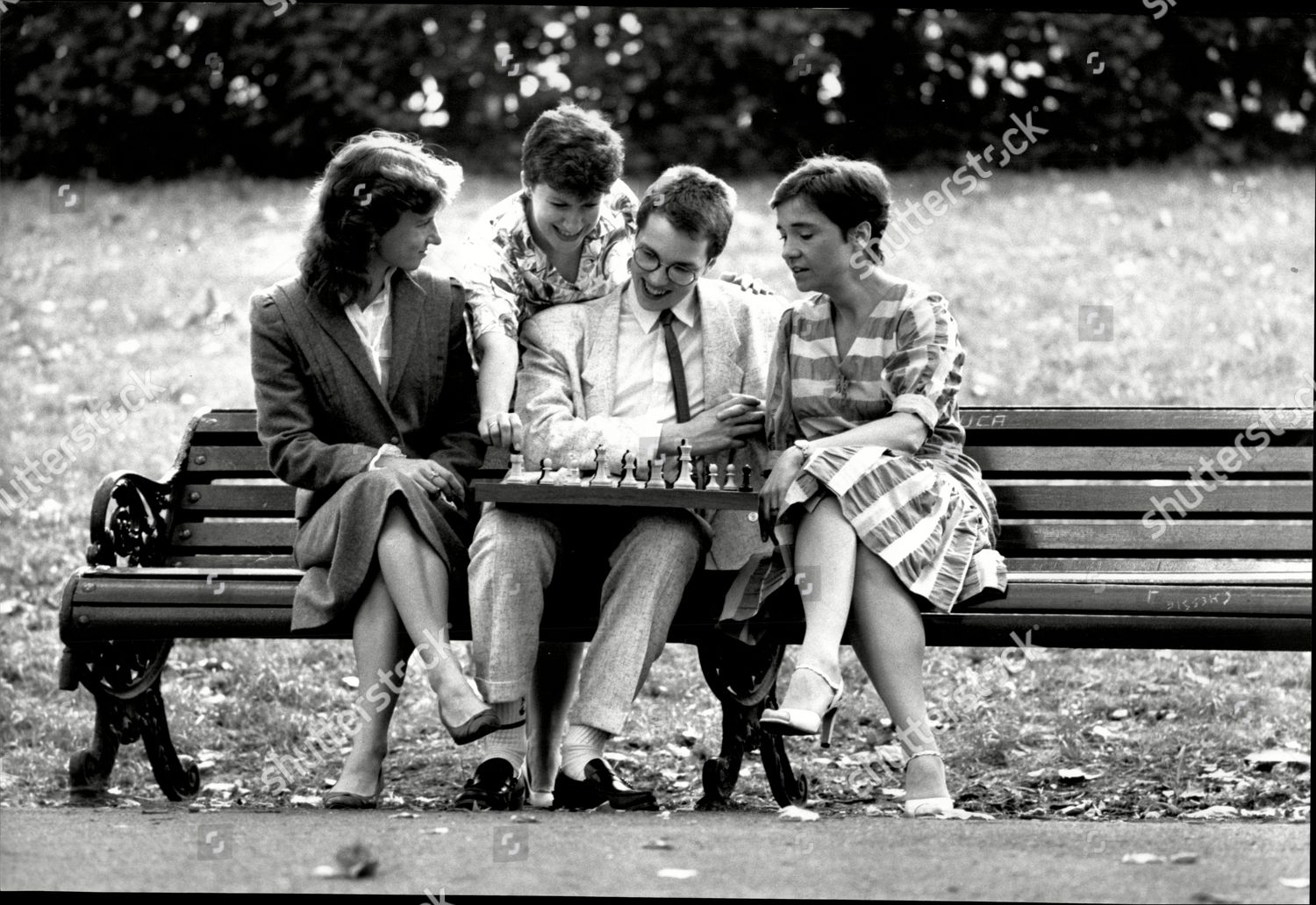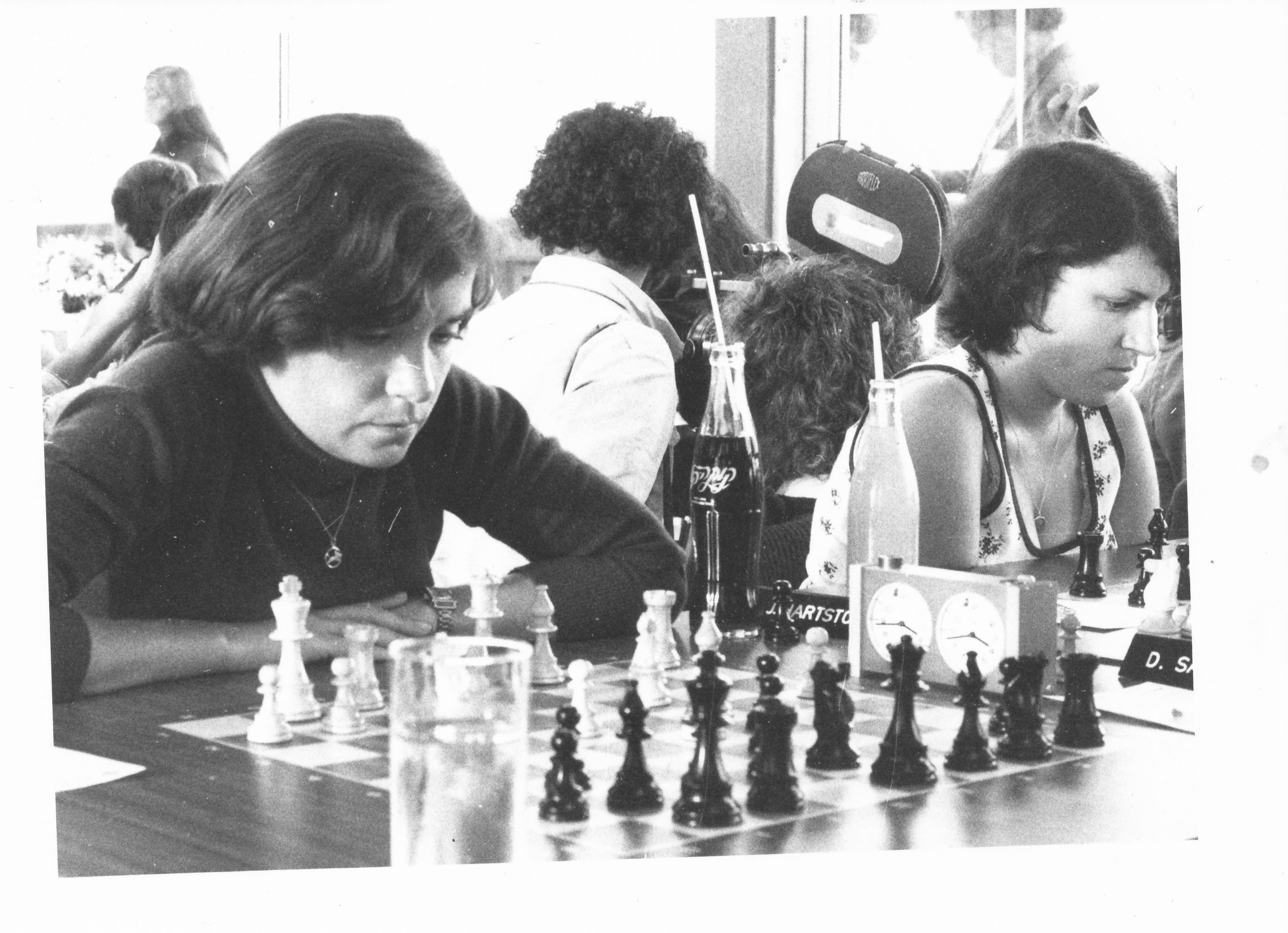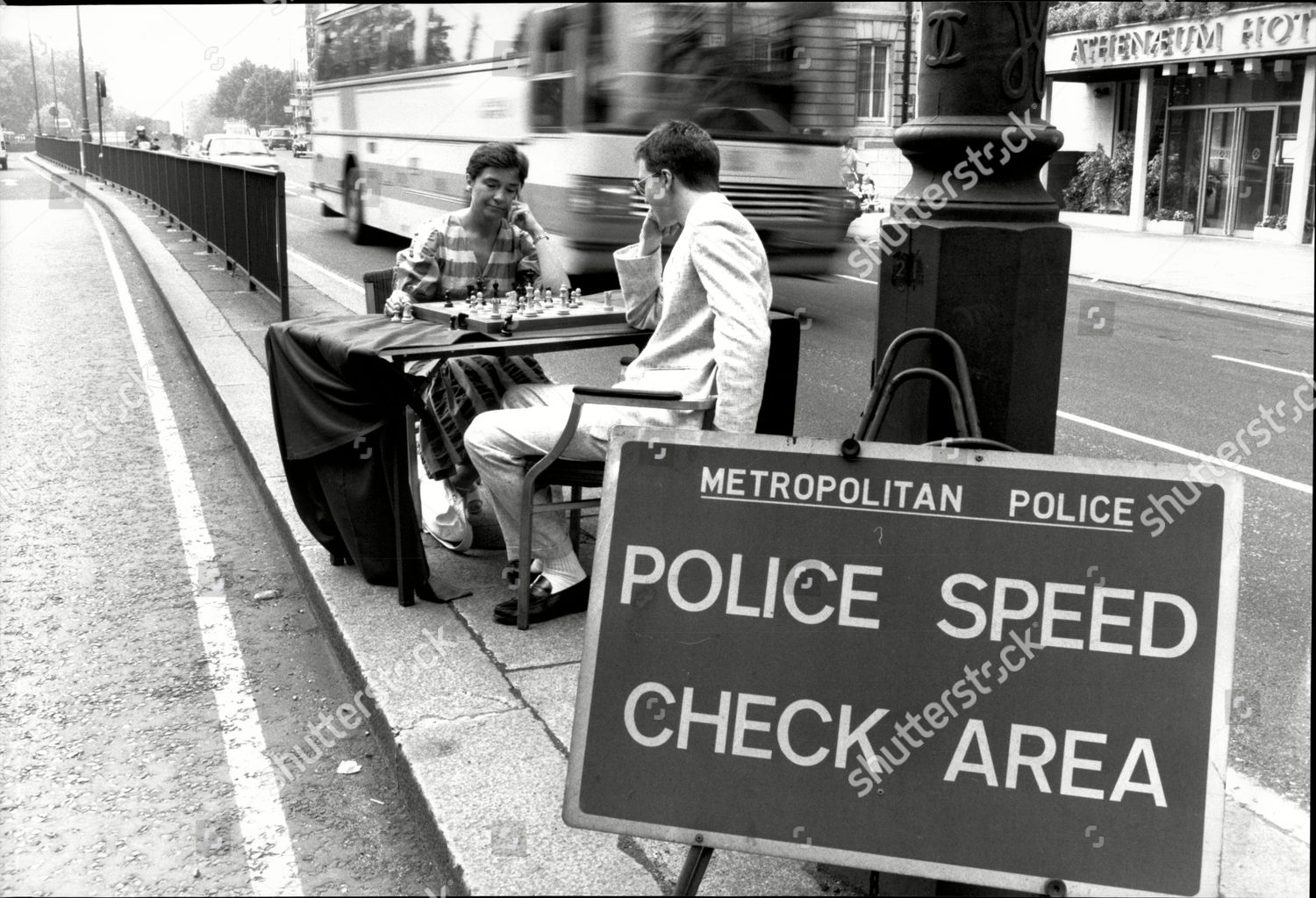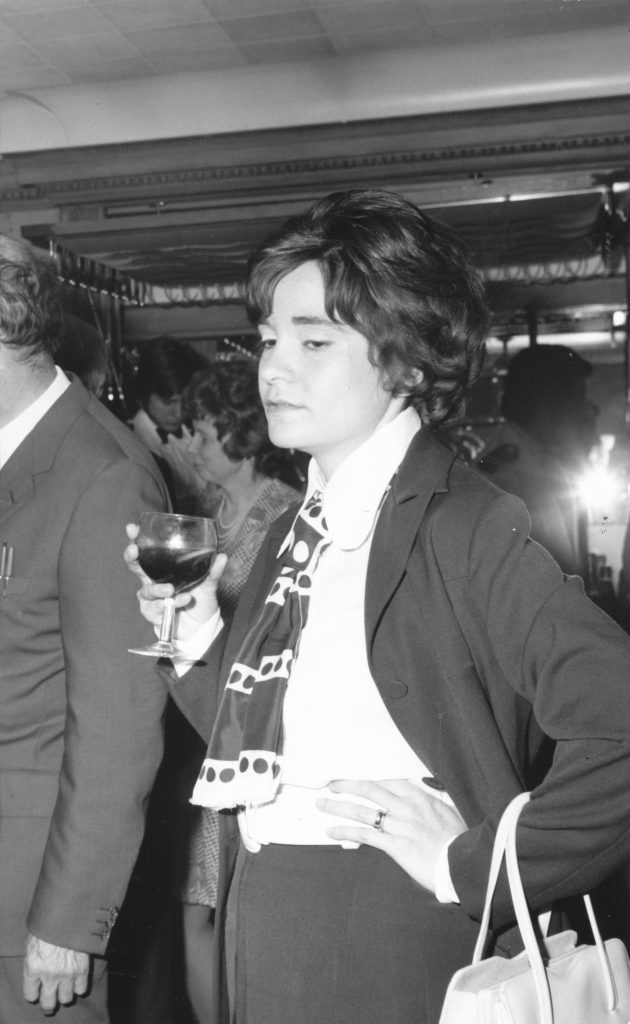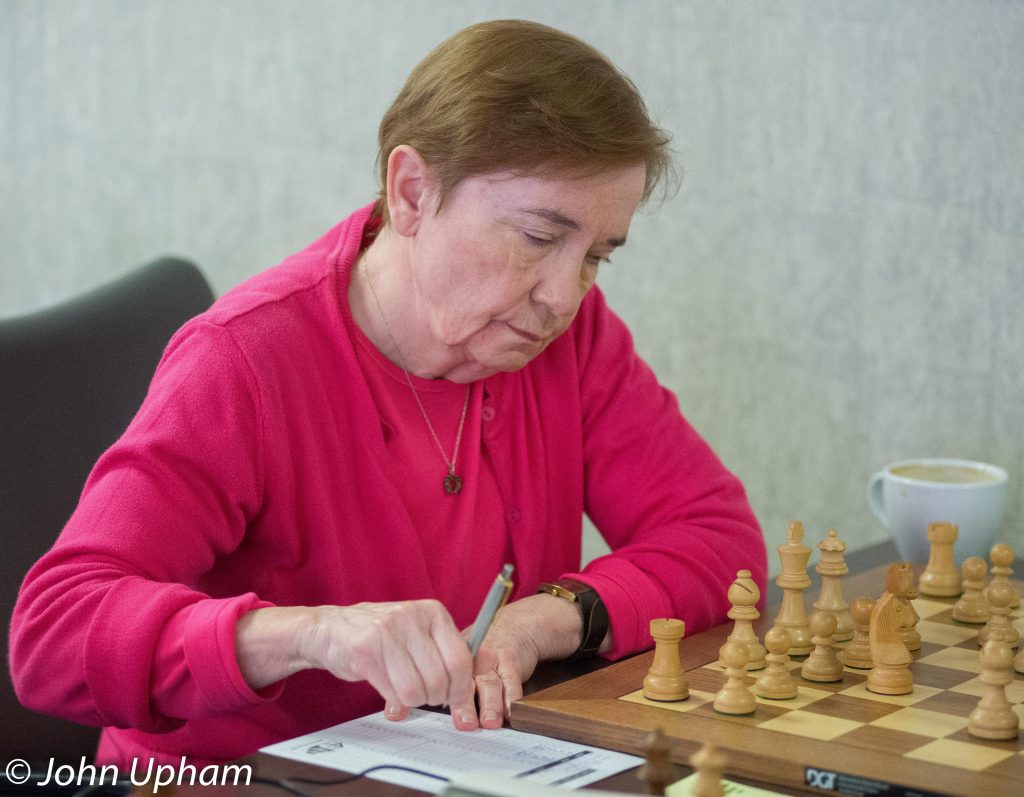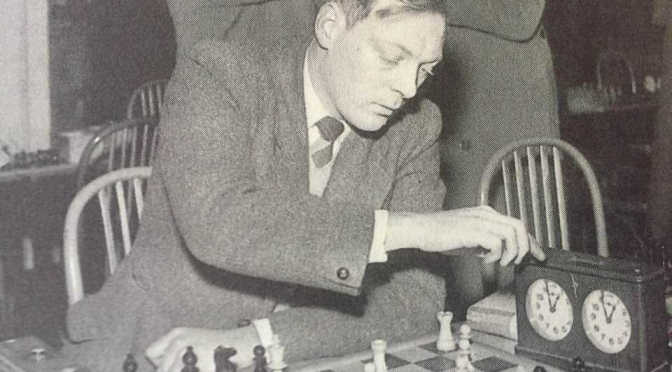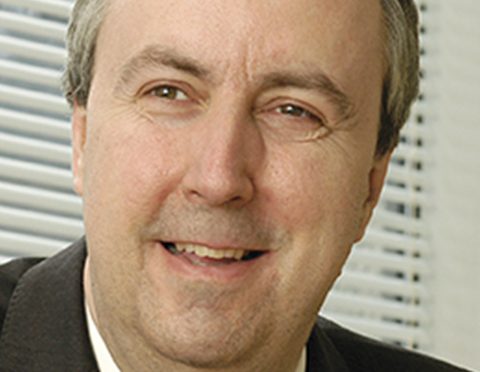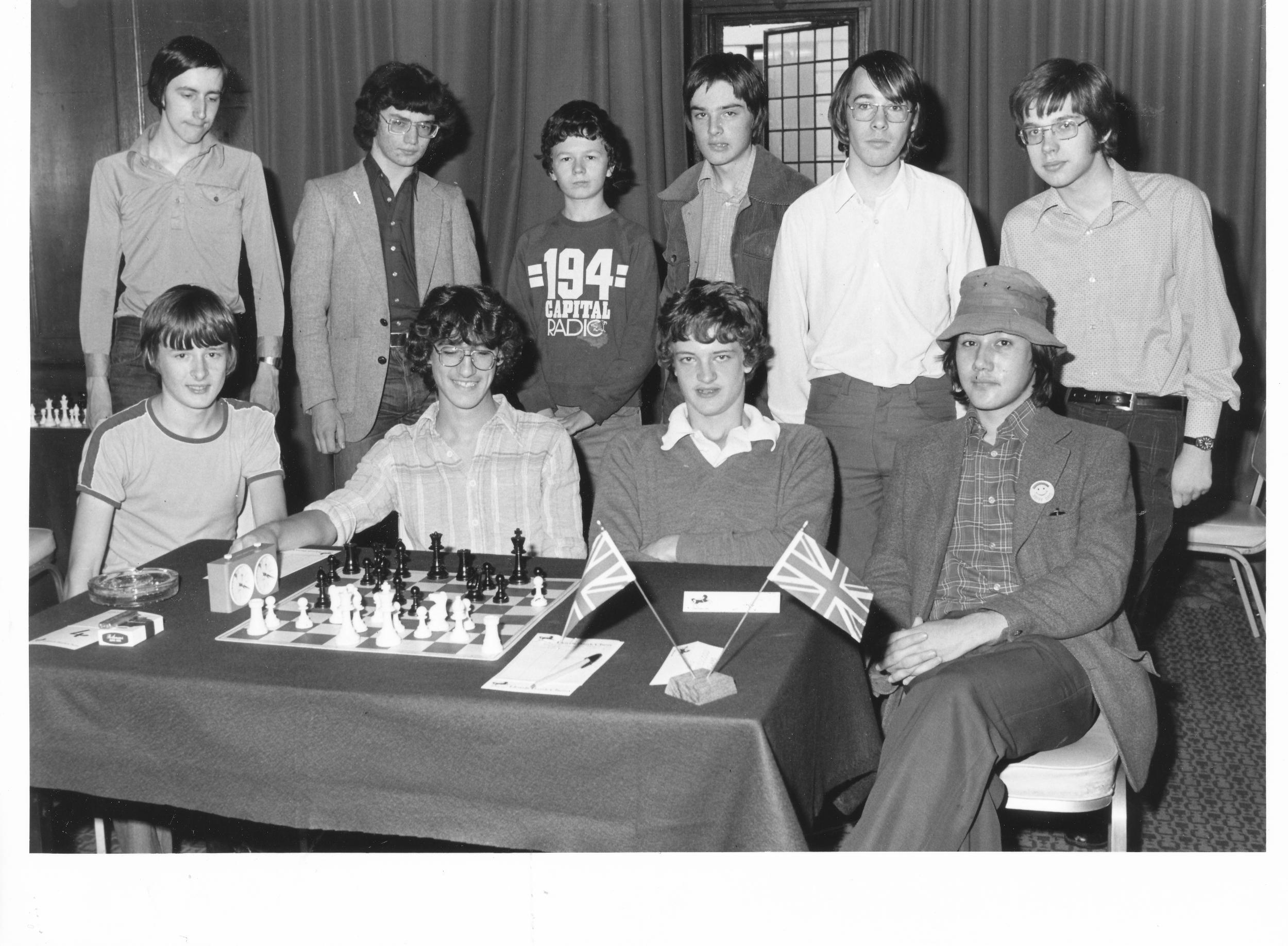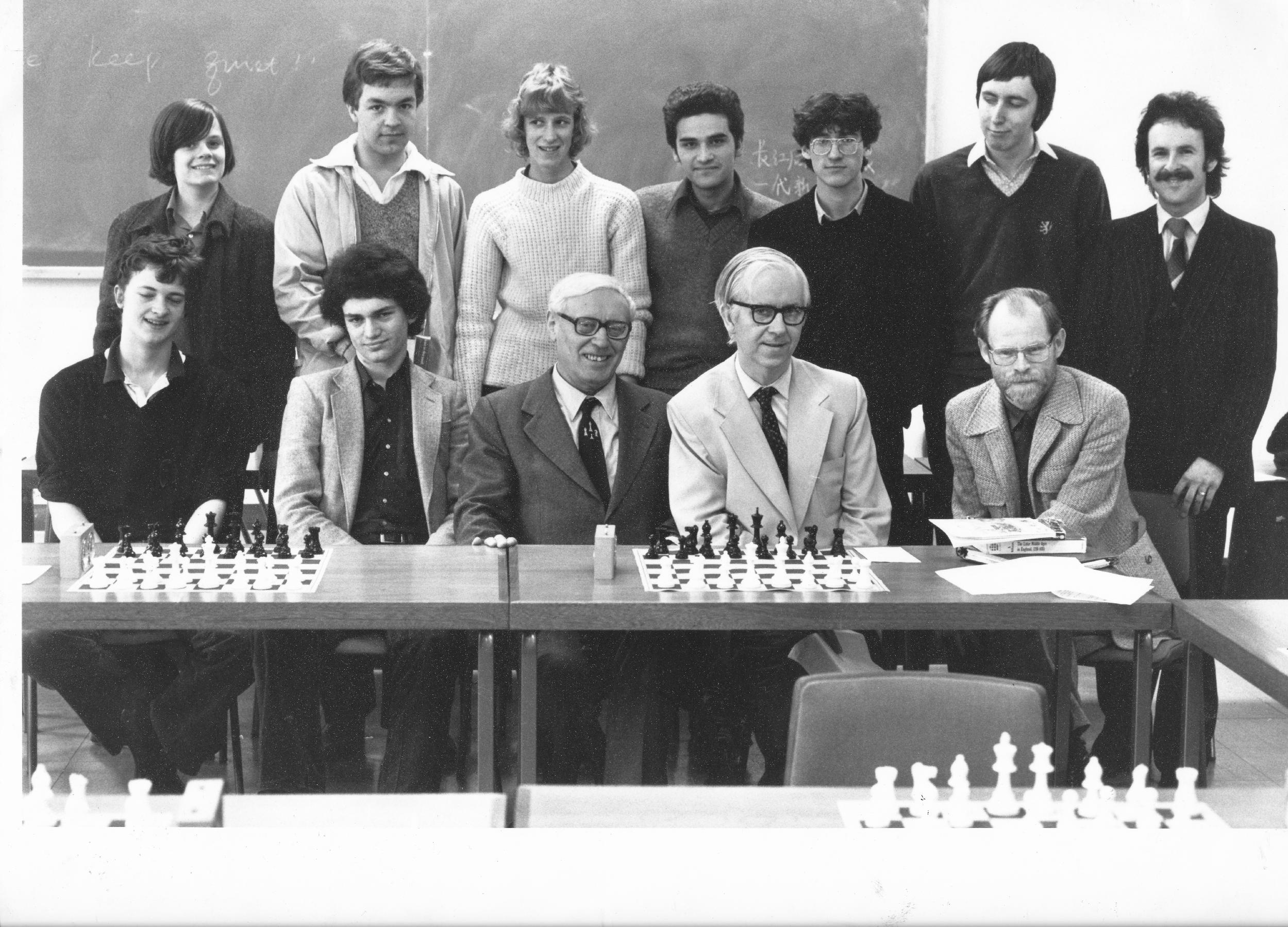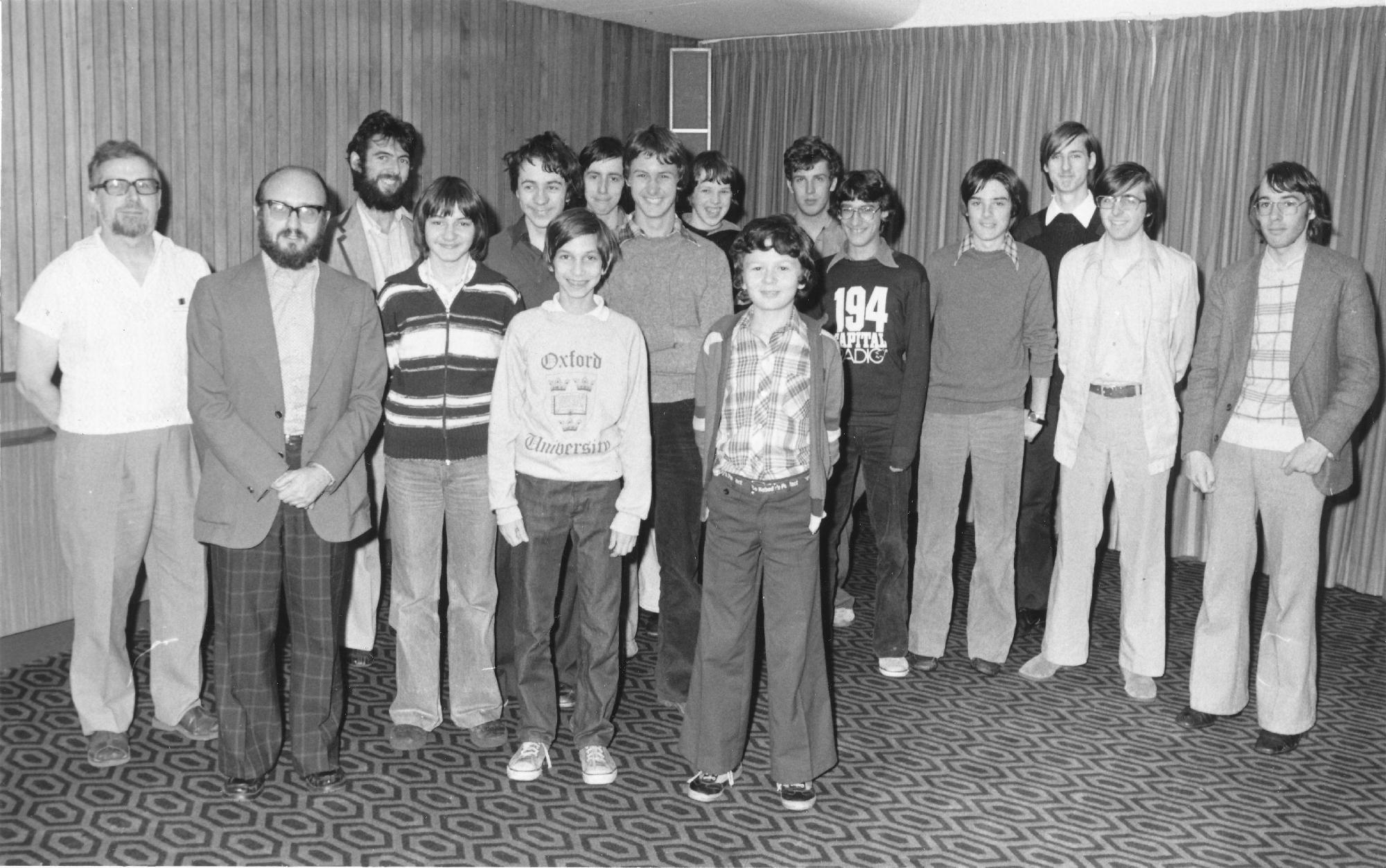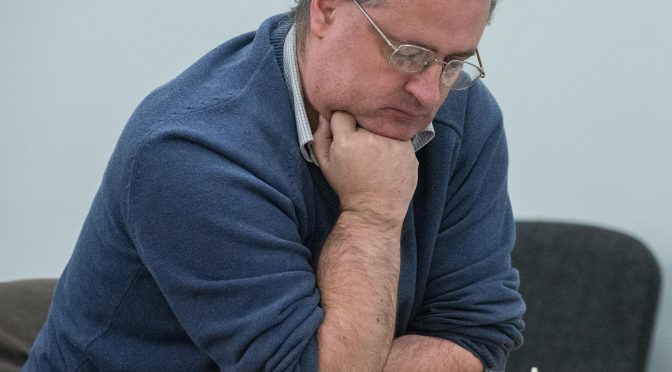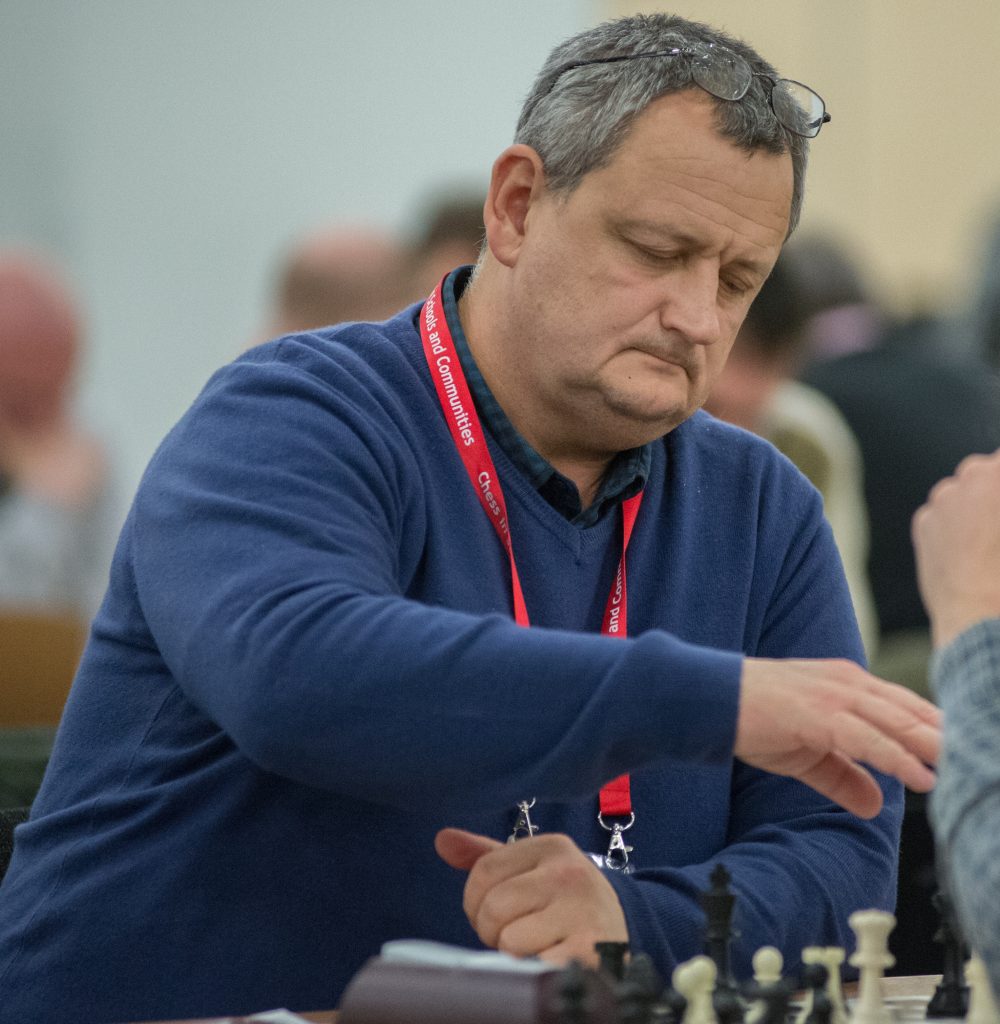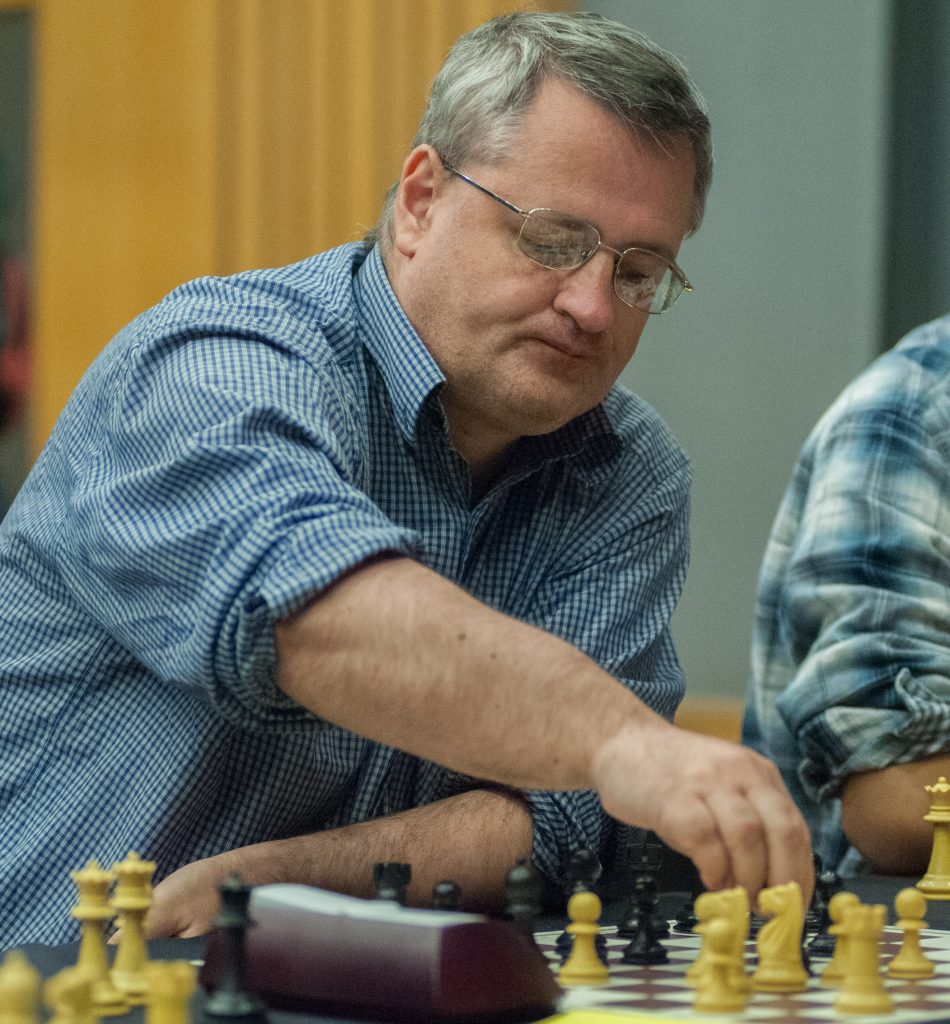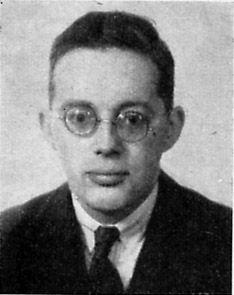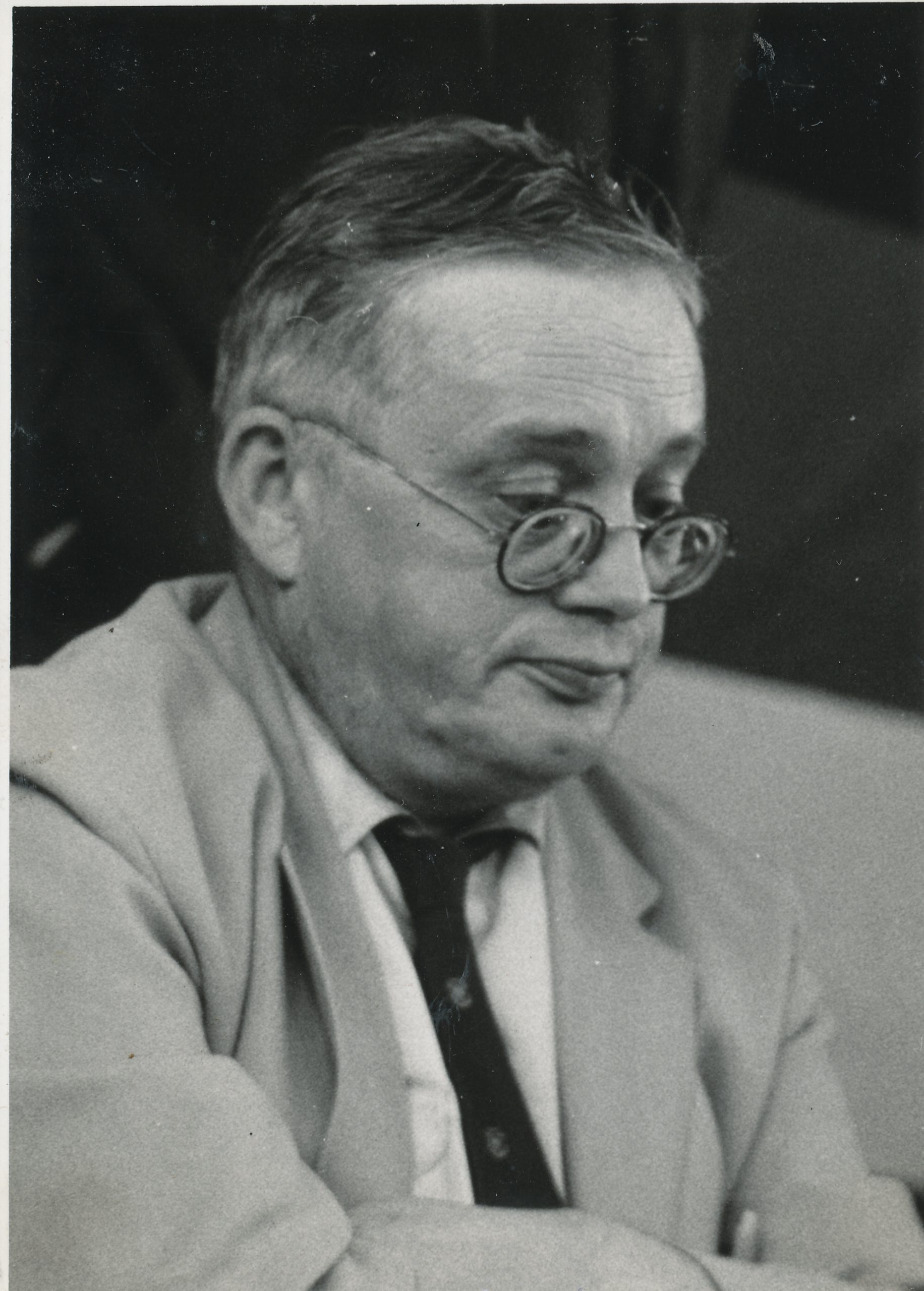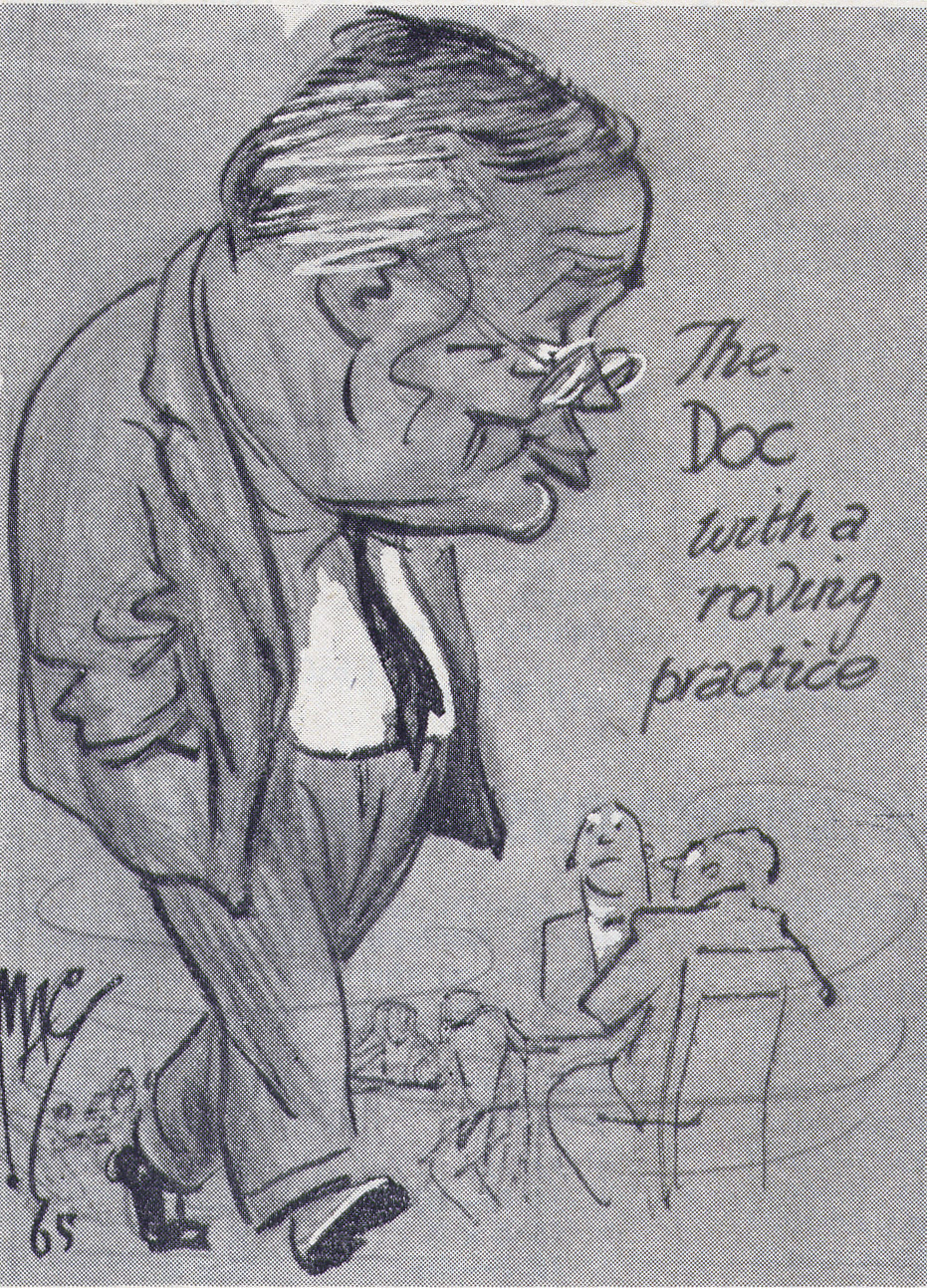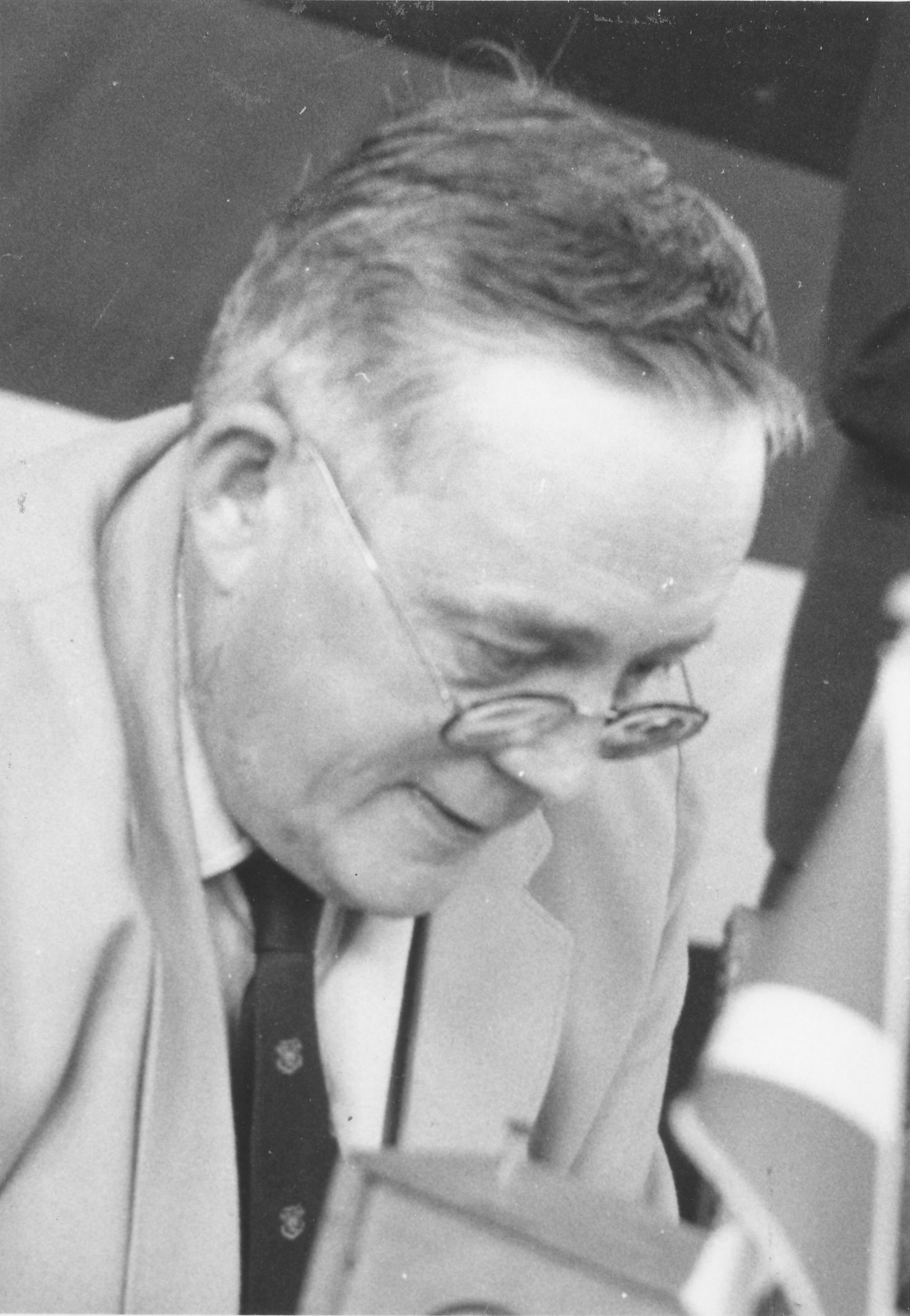
We remember FM Peter Clarke who passed away on Thursday, December 11th, 2014 whilst living at Chapel House, Bude, Cornwall, EX23 9SQ
Peter Hugh Clarke was born on Saturday, March 18th 1933 in West Ham, London. Peter was born to Hugh Clarke (21st April 1905, West Ham – April 1961)and Gertrude Olive (née Ekblom) (7th May 1909, Bournemouth – October 2005, Stratton, Cornwall). Hugh and Gertrude married on June 4th 1932 in Forest Gate in Essex.
In July 1962 Peter married Margaret Eileen Elizabeth (Peggy) Wood, the daughter of BH Wood. Margaret passed away in 2018 in Bude, Cornwall.
From The Modest Master of Morwenstow by James Pratt (sadly, as yet, unpublished) :
“Peter Hugh Clarke was born in London on 18th March, 1933. At the age of eight or nine he taught himself the game from ‘The Book of Knowledge’ and played friendly games with his cousin, who was about a year older. Peter’s father supported his game for many years. PHC was a student at St. Bonaventures School and London University. World War II, and its even longer aftermath, robbed him of a number of playing opportunities. It is surprising that he had no childhood heroes, although later the play of Botvinnik, Keres and Smyslov impressed him.”
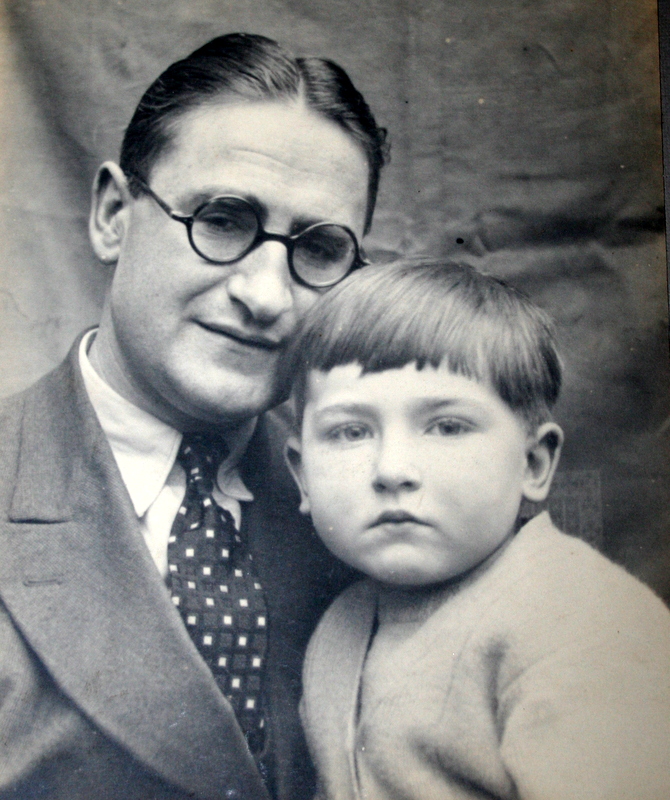
From British Chess (Pergamon, 1983) written by George Botterill :
Chess correspondent of The Sunday Times, Clarke played for England in the Olympiads of 1954, 56, 58, 60, 62, 66 and 68. He has never won the British Championship but has come 2nd on 5 occasions.
A fine writer. His best books are Mikhail Tal’s Best Games of Chess
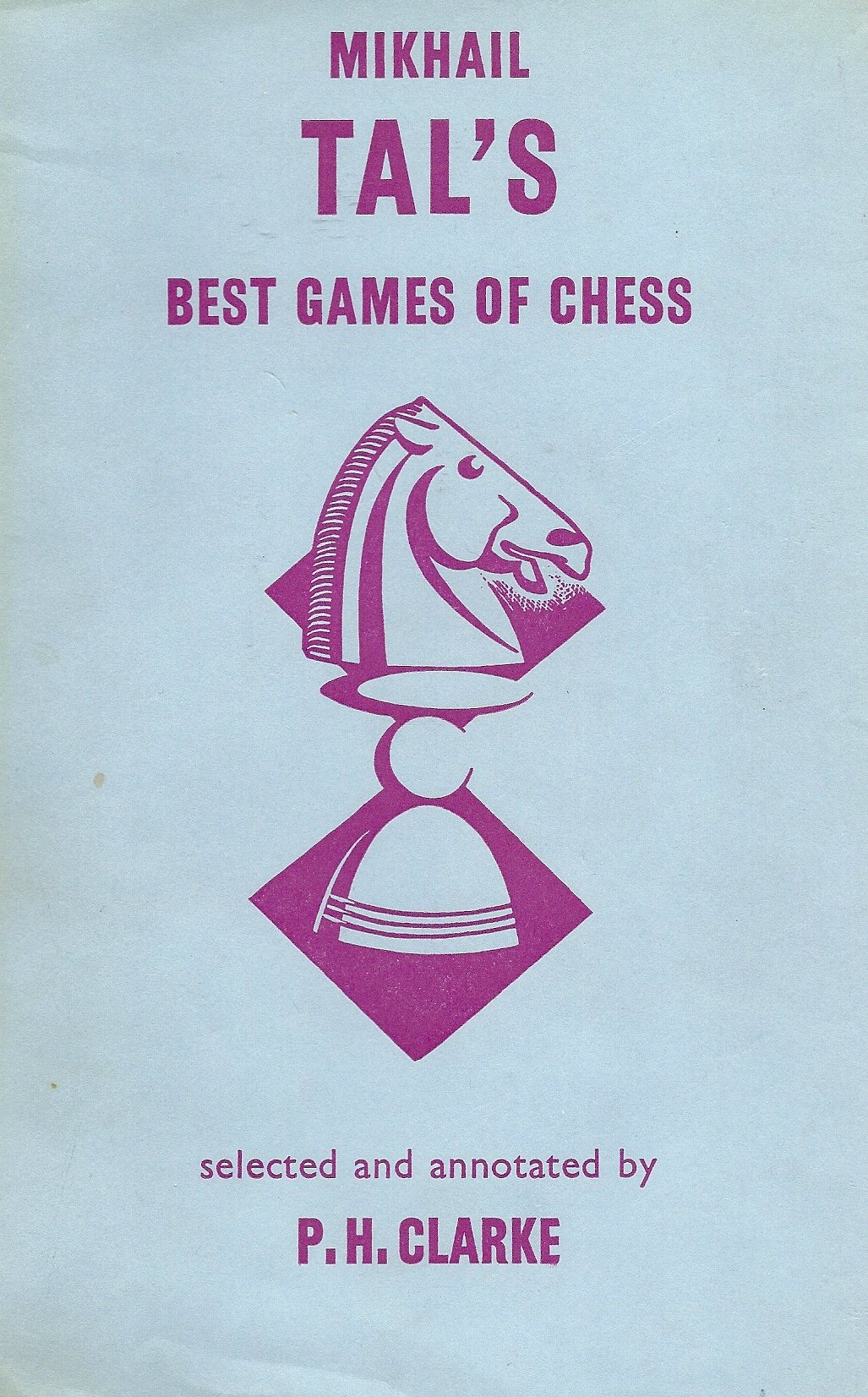
and Petrosian’s Best Games of Chess 1946-1963 both published by Bell.
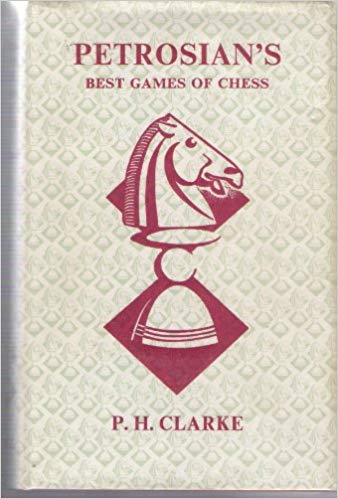
The most remarkable thing about Clarke’s chess career was they way in which he became transformed, in about 1968-9, into the most drawish of players. In British tournaments he has become notorious for correct but dull solidity.”
Peter was Southern Counties (SCCU) Champion for the 1954-55 season.
Peter was England’s third Correspondence Grandmaster (CGM) in 1980 after Keith Richardson and Adrian Hollis.
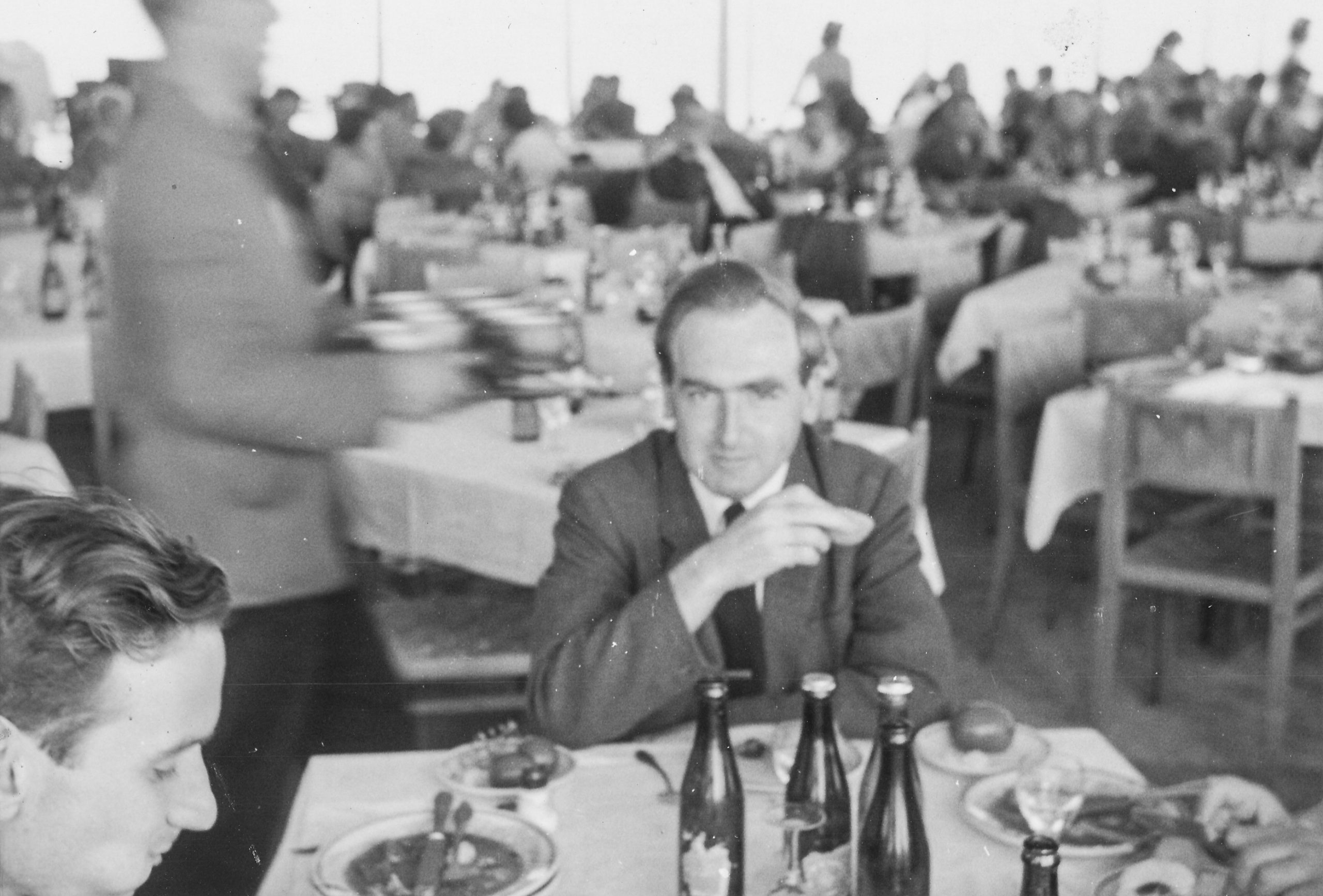
From BCM / ECF :
“FIDE and British Master P.H. Clarke will be best remembered as biographer to Tal and to Petrosyan, but he was so much more. The young Clarke played for Ilford CC in the London League and for Essex at county level. Doing national service he was to learn the Russian that was to so shape his writings.

For a brief period in the late 1950s, and early sixties, he was the number two player in England, ahead of the vastly more experienced Alexander and Golombek. He played, of course, below Jonathan Penrose, a partnership that bore fruit when preparing openings; latterly they both became Correspondence Grandmasters.”

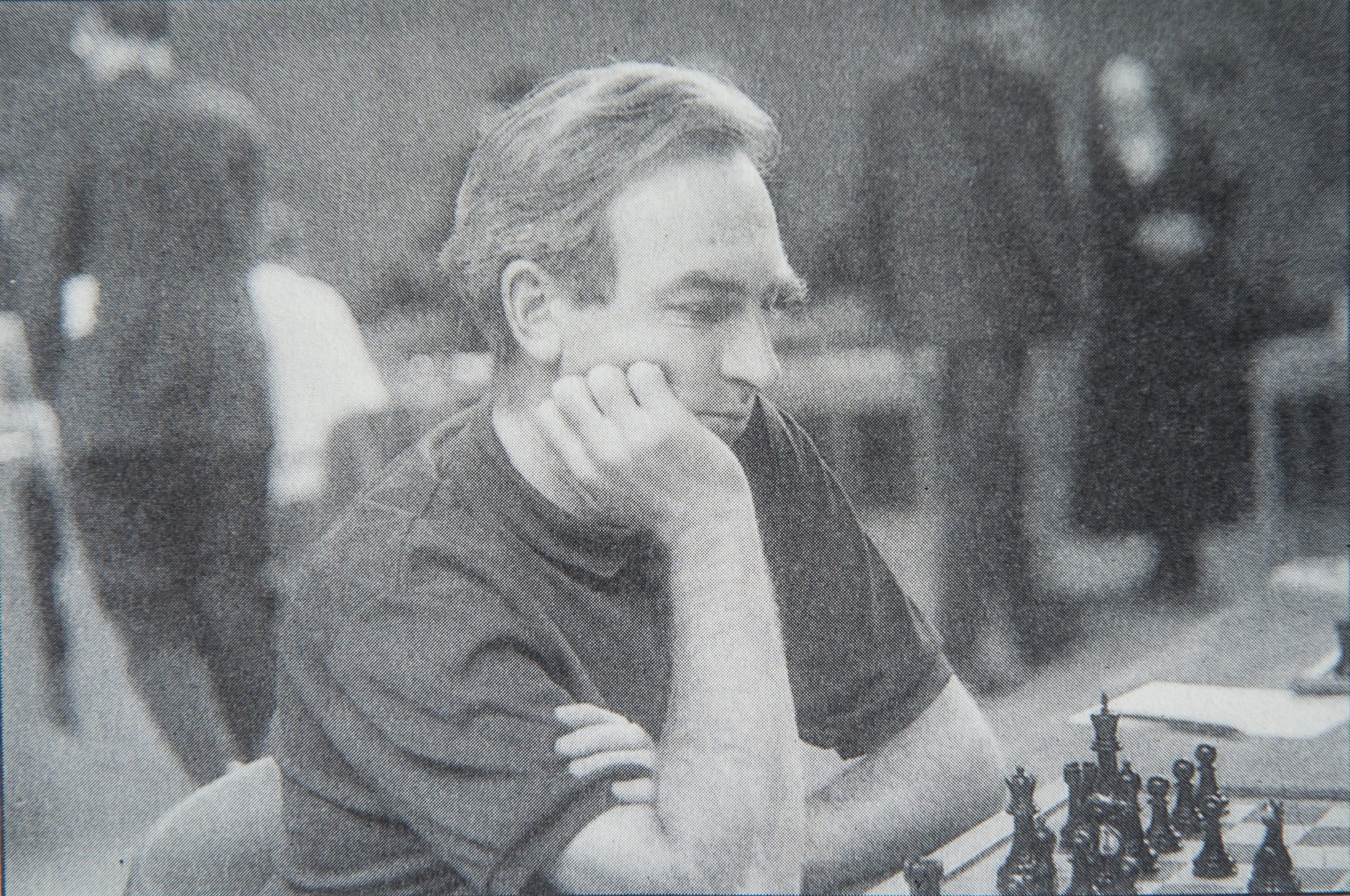
“At the British Championships itself he finished second on his first appearance; he was to tie for silver medal on no less than five occasions, appearing, almost without a break for thirty years, a run that ended in 1982. He represented the BCF – as it then was – in eight Olympiads, playing on top board in 1966.
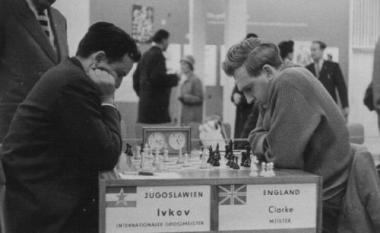
The Clarke family moved to the West of England in the late Sixties. PHC played in thirteen WECU Championships, and lost only twice. As a player he could be cautious, agreeing too readily to draws. Accuracy and respect meant more to him than ambition. The biographer became a journalist as illness cut short his playing career. In his time he beat Larsen, Penrose and Szabo.
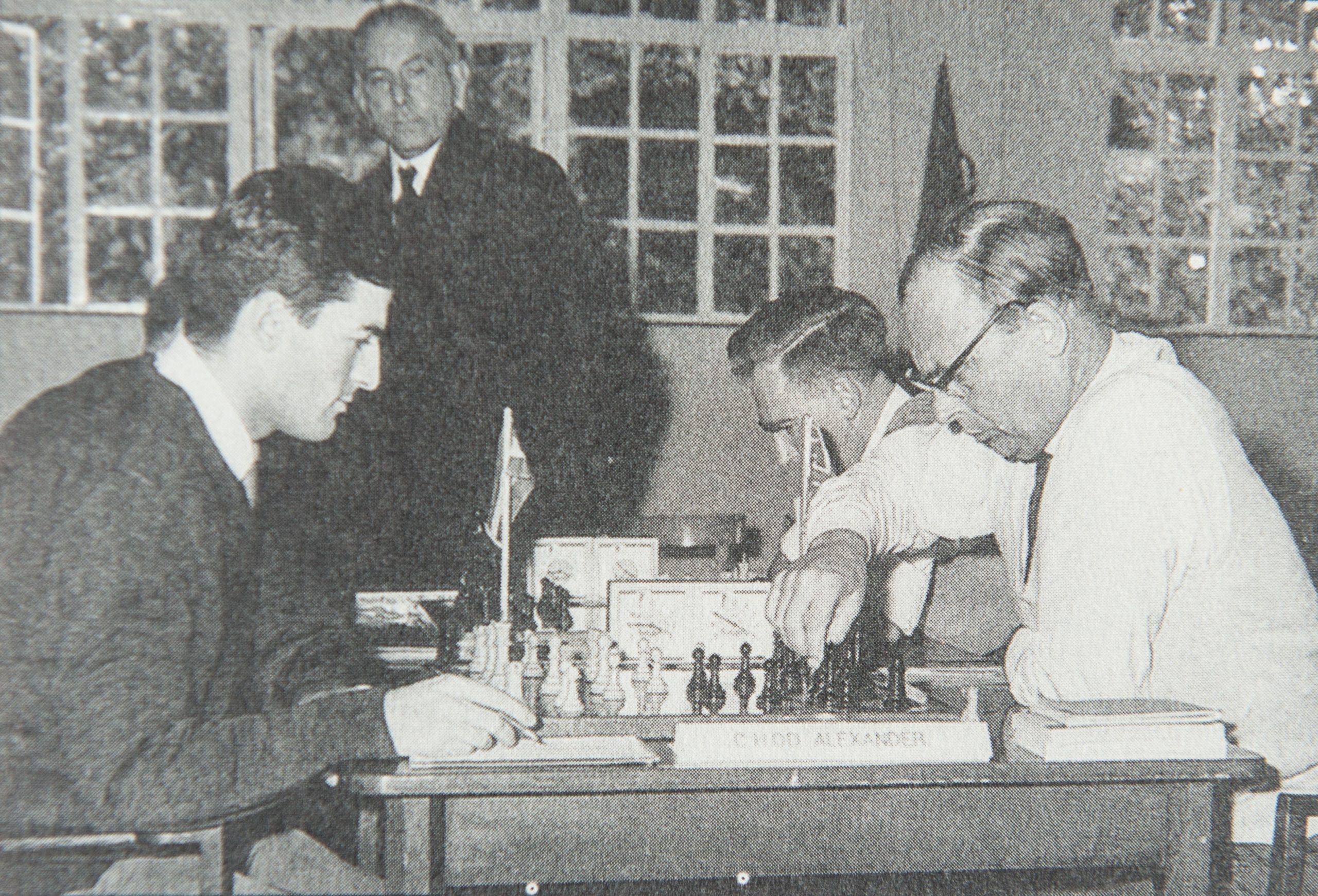
In 1962 he married BH Wood’s daughter, Peggy. They had three daughters. In 1975 my mother happened across Peter and Peggy on Morecambe prom. ‘Never’ she was later to tell me, ‘have I seen a couple more in love.'”
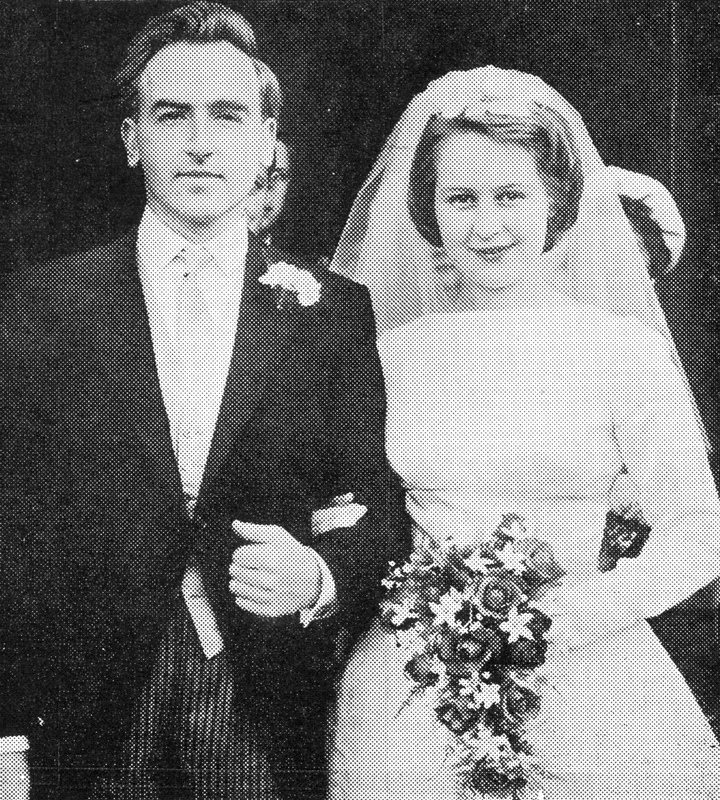
We are grateful to James Pratt to allow us to quote from the the sadly unpublished “Modest Master from Morwenstow” as follows :
PHC by John Littlewood :
“Peter had a relatively short career at the top and it is interesting to comment on his style. In essence, his great strength lay in positional understanding which backed-up his defensive skills rather than helped his ability to create wins; in other words, he won games in which his opponents over-pressed or opted for dubious positional moves.

After doing well in English chess, he was perhaps pushed into international chess too early for him to develop his own personal creative style. Playing for England and meeting strong players, he tended towards a rather negative approach that may have been necessary for the team but was not good for his own personal progress, as shown when he later met English opponents who outstripped him in their positive will-to-win. His friendship with Penrose (a far stronger player) led to far too many draws which did neither of them any good.
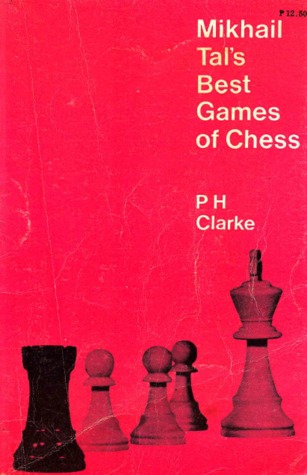
To be fair, Peter was not an easy player to beat but, on the other hand, he was not too hard to draw against if you felt so inclined. His forte lay in his knowledge of the game and his excellent writing skills, where he was at his happiest; there is hardly a book of his that I haven’t enjoyed.”
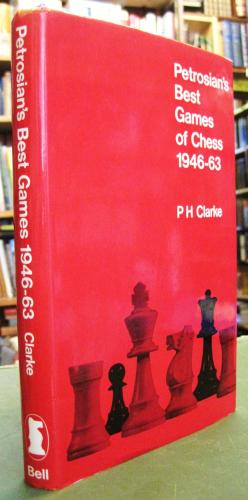
Writing in BCM 04/64, John Littlewood called PHC a self-style non-tactician and disagreed with Clarke’s belief in the inner logic (‘I have made no mistakes and therefore my position is OK.’) of positions where tactics are to the fore.

PHC by Leonard Barden :
“Peter’s contribution to British Chess was important as a player and even more so as a writer. His best period was 1956-61. He, Penrose and myself used to stay in the same hotel during the British Championships and prepare and analyse together, although we played hard when actually paired. Peter was the solid man in the English team, gradually taking over the role of Golombek. It was important that we did reasonably well in this period which provided a bridge between the Alexander/Golombek era and the rise of Keene/Hartston.
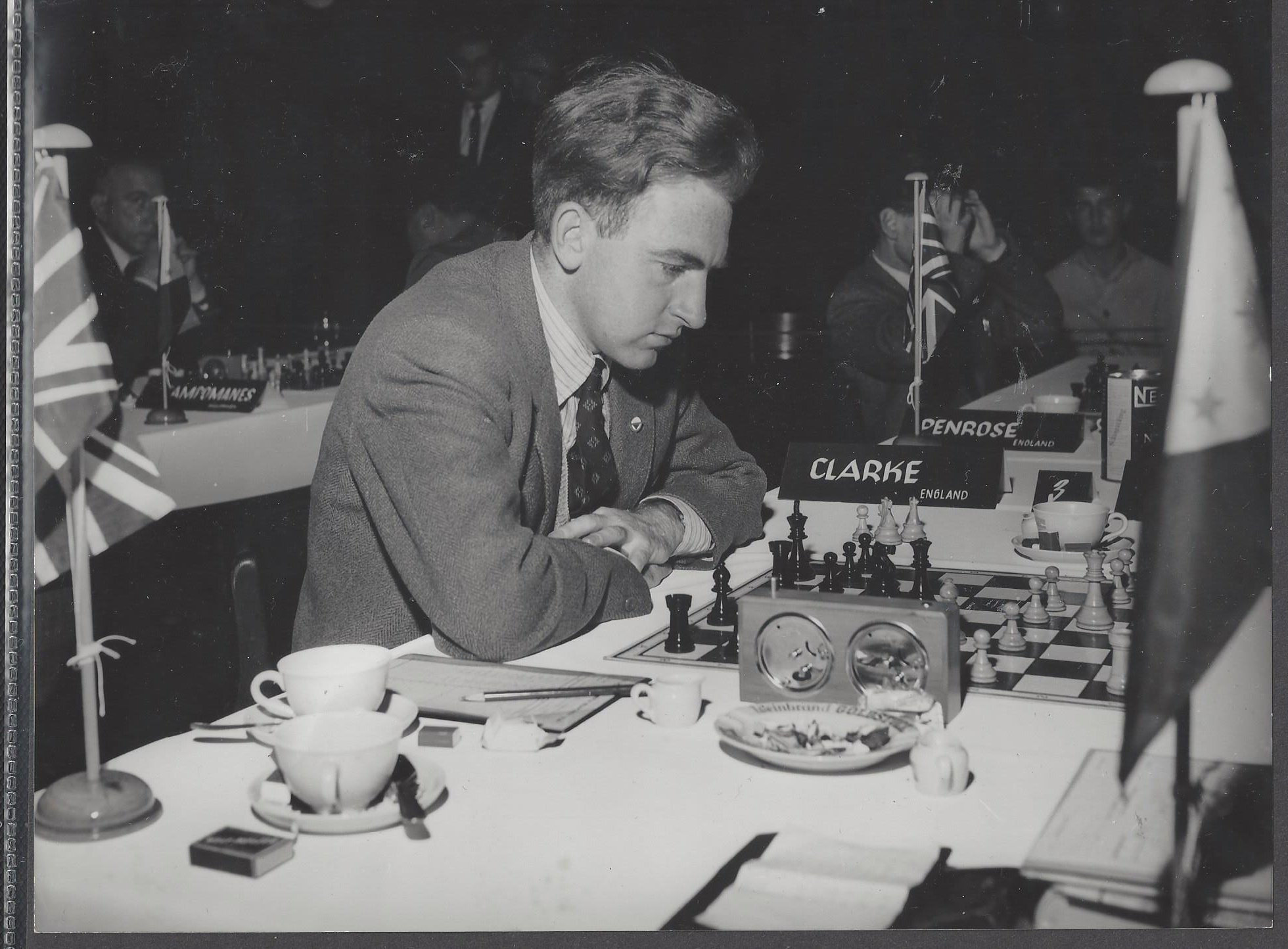
Peter was always a good friend to me and his family gave me hospitality each year during the Ilford Congress. Peter’s books, especially the one about Tal, were real works of scholarship in an era where there were no computers to facilitate the job. He could have achieved more as a player if he had been able to concentrate fully on that, but the economic climate then was poor for professionals.”

PHC by Bernard Cafferty :
“Right up to that point of his illness in the 1980’s he had worthily defended the reputation of the older generation in the British Championship, as the last survivor, still active at that level, from the Penrose era. I first saw Peter at the 1951 British Championship at Chester and first played him at the 1952 Bristol Universities individual contest.
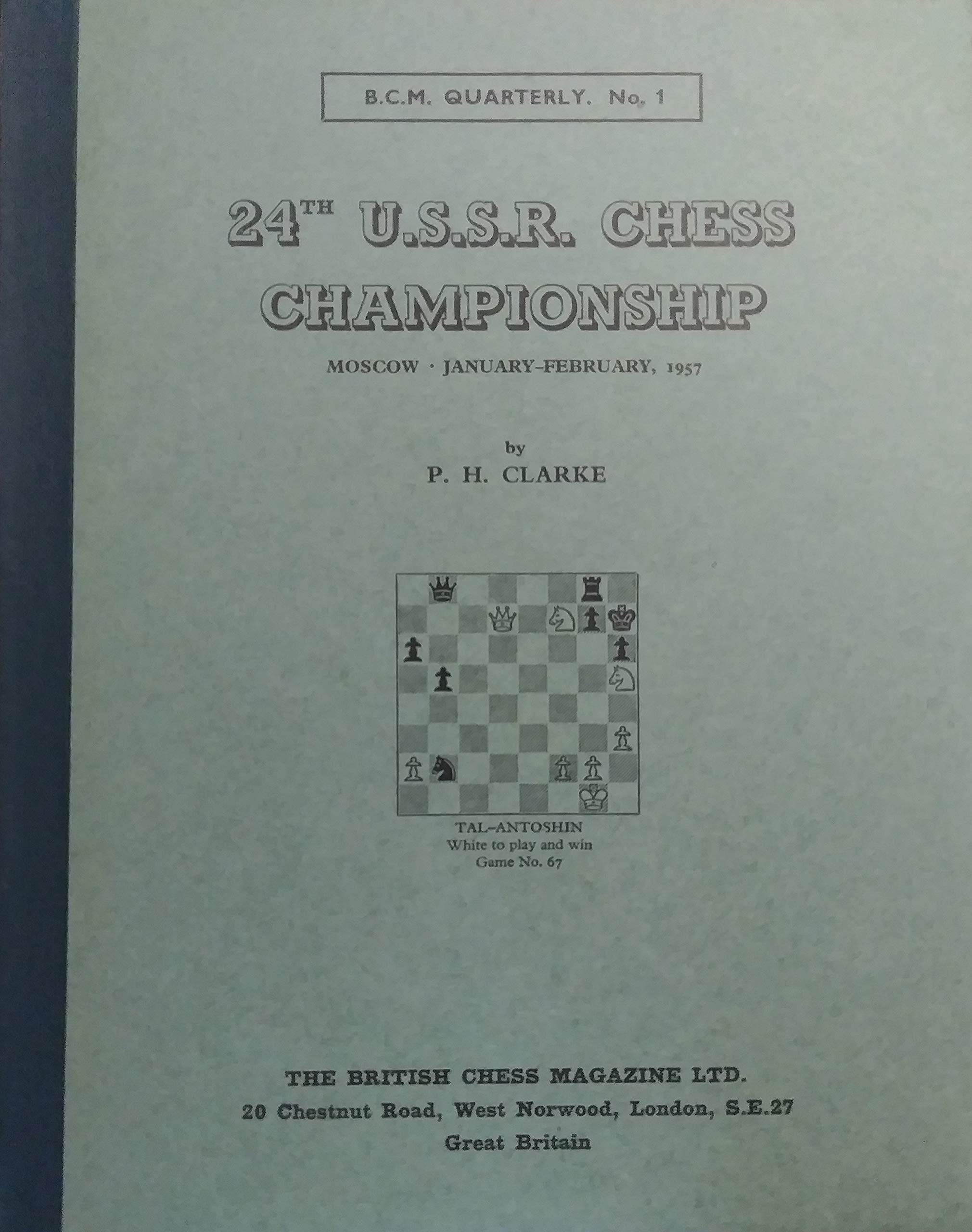
He left the University of London before taking his degree (study of chess rather taking over his life), but then had the good fortune to go on to study Russian while doing his National Service, around 1954-55. Or was he still in the Army when the Moscow 1956 Olympiad took place? He certainly did well there, perhaps less affected than other Westerners by the strangeness of the place that was just recovering slightly from the depths of Stalin’s baleful influence.
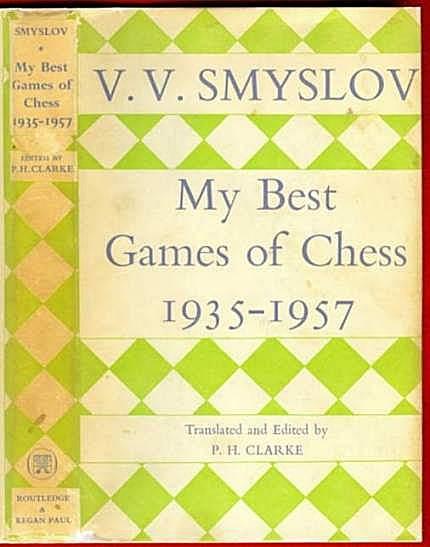
I do recall that for a couple of years Peter changed his cautious style. This was around 1957-58 when he scored one of his two wins against Penrose. Was it at Ilford?* I remember that the game appeared with notes by B.H. Wood in ‘The Illustrated London News’ column.
(*Subsequent to this article being posted LWB was kind enough to clear up BCs above query :
Southend 1958. Clarke beat Penrose, Penrose beat Barden, Barden beat Clarke. Clarke/Barden 4/5, Penrose 3.5/5.)
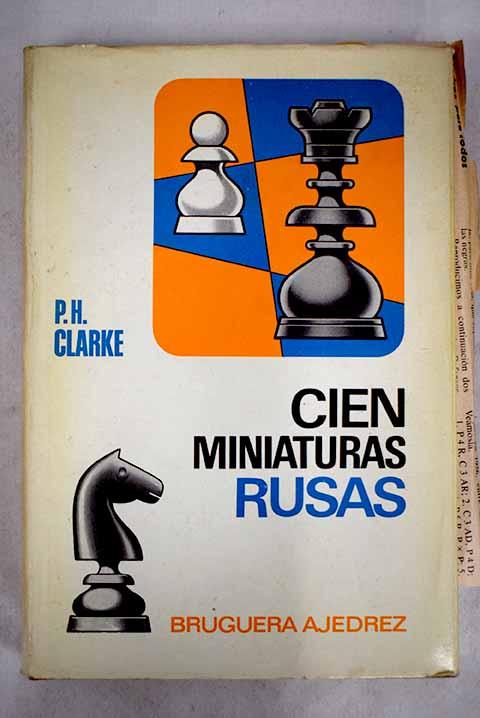
I used to see Peter regularly at the Paignton and Hastings Congresses in the 1990’s but not in the last couple of years. His health seems restored.”
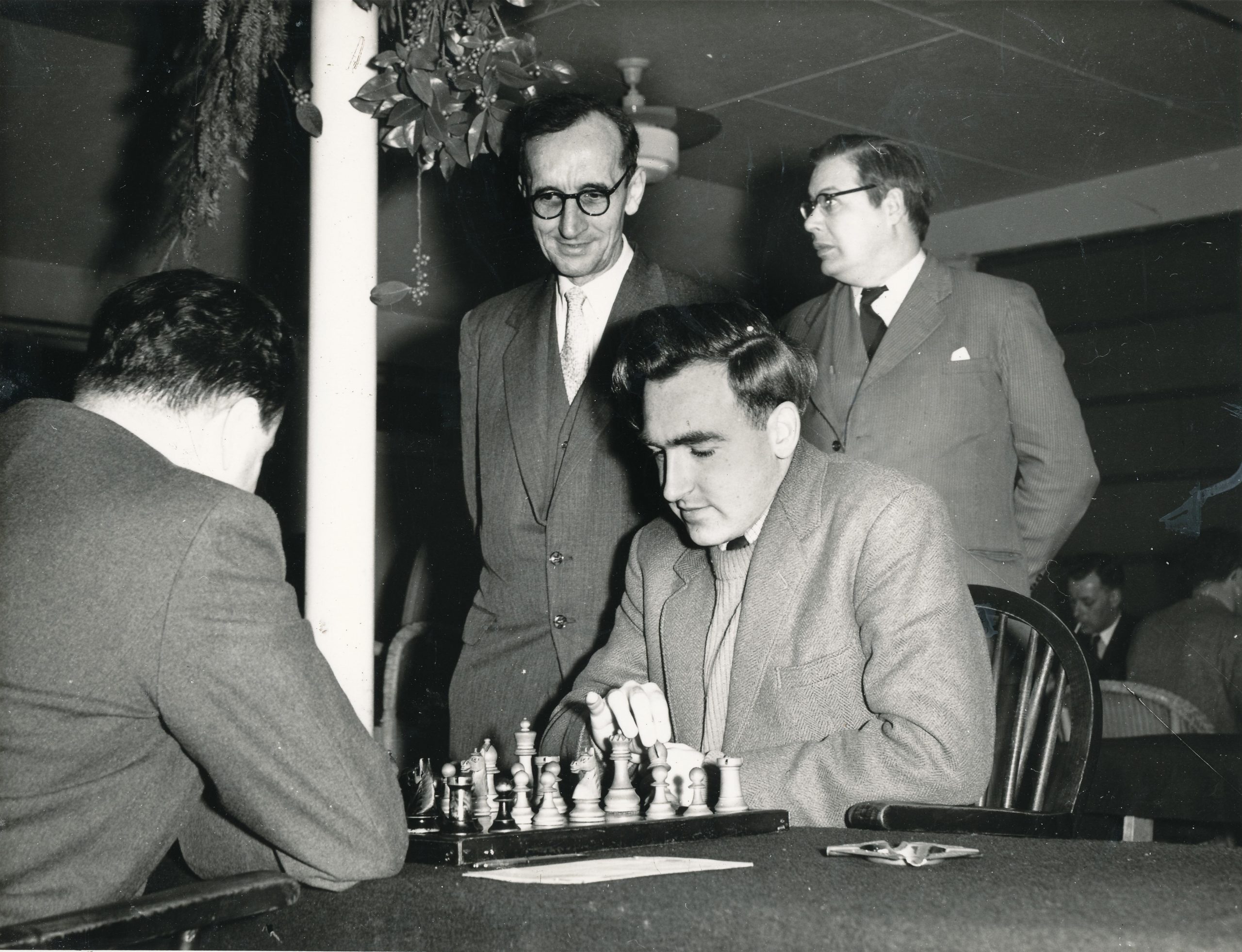
PHC by Ken Harman :
“I am very pleased to hear about your book about Peter Clarke; not sure I can contribute much as I wasn’t a friend of his so only knew him through seeing him and Margaret at chess tournaments. He was a quiet spoken gentleman who played such quiet positional chess that I would call it ‘monastic chess’. I think Clarke thought chess a search for spiritual truth, only to be found in the cloisters of spiritual truth, only to be found in the cloisters of contemplative life – ‘The Thomas Merton of Chess’, if you like. Of course, I have no idea if he was a spiritual man in real life but his chess always struck me as if he was reaching for heaven and found hell in a doubled pawn. He seemed like a nice man and I suspect his wife Margaret was the dominant one. I have his book on Mikhail Tal’s Best Games of Chess (Bell 1961) which is signed by him and may well have been his copy, because as you open the book – there is a small newspaper clipping and a photo of Clarke sellotaped which is rather unusual being that the book is about Tal, and not him. ”
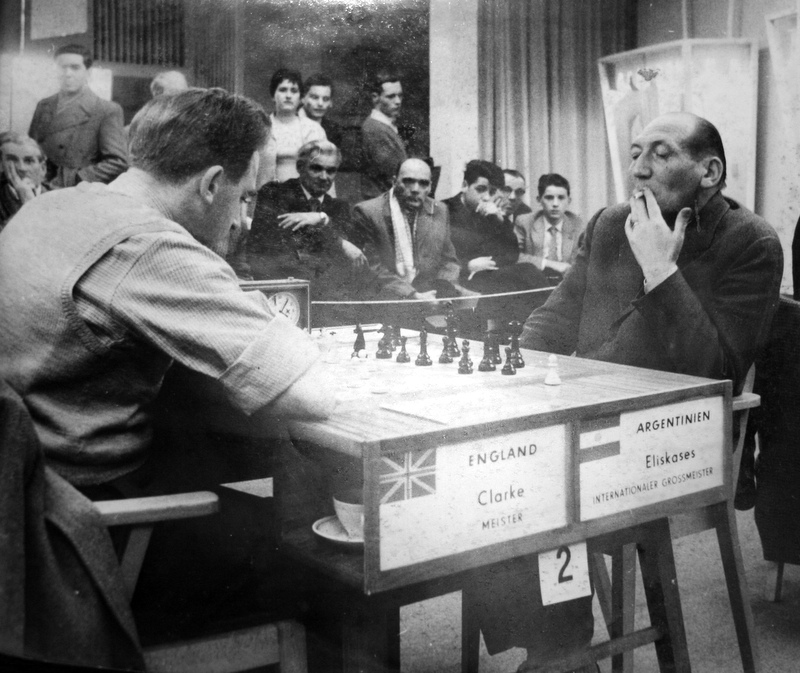
PHC by Alan P. Borwell (ICCF Honorary President) :
“I first met Peter at the 1959 BCF Congress in York when I was a member of local organising committee and then at Paignton and when York played & won the National Club Championship in 1964/5.
In 1966 I played Peter in the British Chess Championship in last round in Sunderland.”
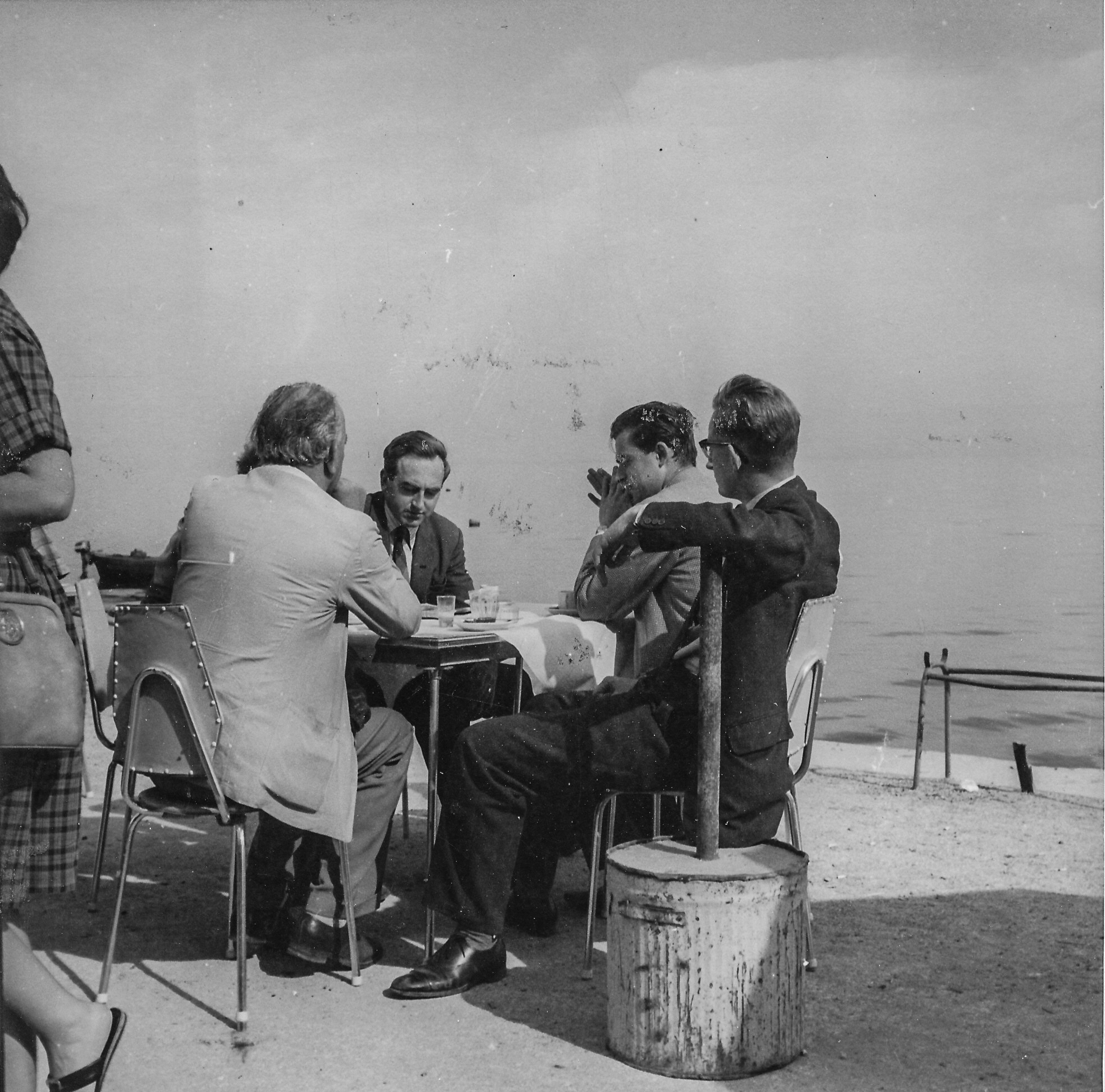
and from Wikipedia :
Peter Hugh Clarke (18 March 1933 – 11 December 2014) was an English chess player, who hold titles FIDE master (FM) and International Correspondence Chess Grandmaster (1980), FIDE International arbiter (1976), Chess Olympiad individual silver medal winner (1956).
Peter Clarke started playing chess at the age of six. He twice won the London Boys’ Chess Championship (1950, 1951). He was British Chess Championship multiplier participant where five times won silver medal.
Since 1959, Peter Hugh Clarke has been working as a chess journalist in the newspaper Sunday Times and magazine British Chess Magazine. He known as the biographical book’s author of Mikhail Tal (1961) and Tigran Petrosian (1964). Thanks to his good knowledge of Russian language, he translated the book about Vasily Smyslov in 1958. In 1963 he wrote a book 100 Soviet Chess Miniatures.
Peter Clarke played for England in the Chess Olympiads :
In 1954, at second reserve board in the 11th Chess Olympiad in Amsterdam (+2, =2, -3),
In 1956, at reserve board in the 12th Chess Olympiad in Moscow (+7, =5, -0) and won individual silver medal,
In 1958, at fourth board in the 13th Chess Olympiad in Munich (+2, =10, -3),
In 1960, at third board in the 14th Chess Olympiad in Leipzig (+4, =7, -3),
In 1962, at second board in the 15th Chess Olympiad in Varna (+3, =10, -2),
In 1964, at second board in the 16th Chess Olympiad in Tel Aviv (+2, =8, -2),
In 1966, at first board in the 17th Chess Olympiad in Havana (+2, =10, -1),
In 1968, at third board in the 18th Chess Olympiad in Lugano (+0, =7, -1).
Also he played for England in the World Student Team Chess Championship (1954, 1959)and in the Clare Benedict Chess Cup (1960-1961, 1963, 1965, 1967-1968) where won team silver medal (1960) and 4 bronze medals (1961, 1963, 1967, 1968).
In later years, Peter Clarke active participated in correspondence chess tournaments. In 1977, he won British Correspondence Chess Championship. In 1976, Peter Clarke was awarded the International Correspondence Chess Master (IMC) title and received the International Correspondence Chess Grandmaster (GMC) title four years later.

